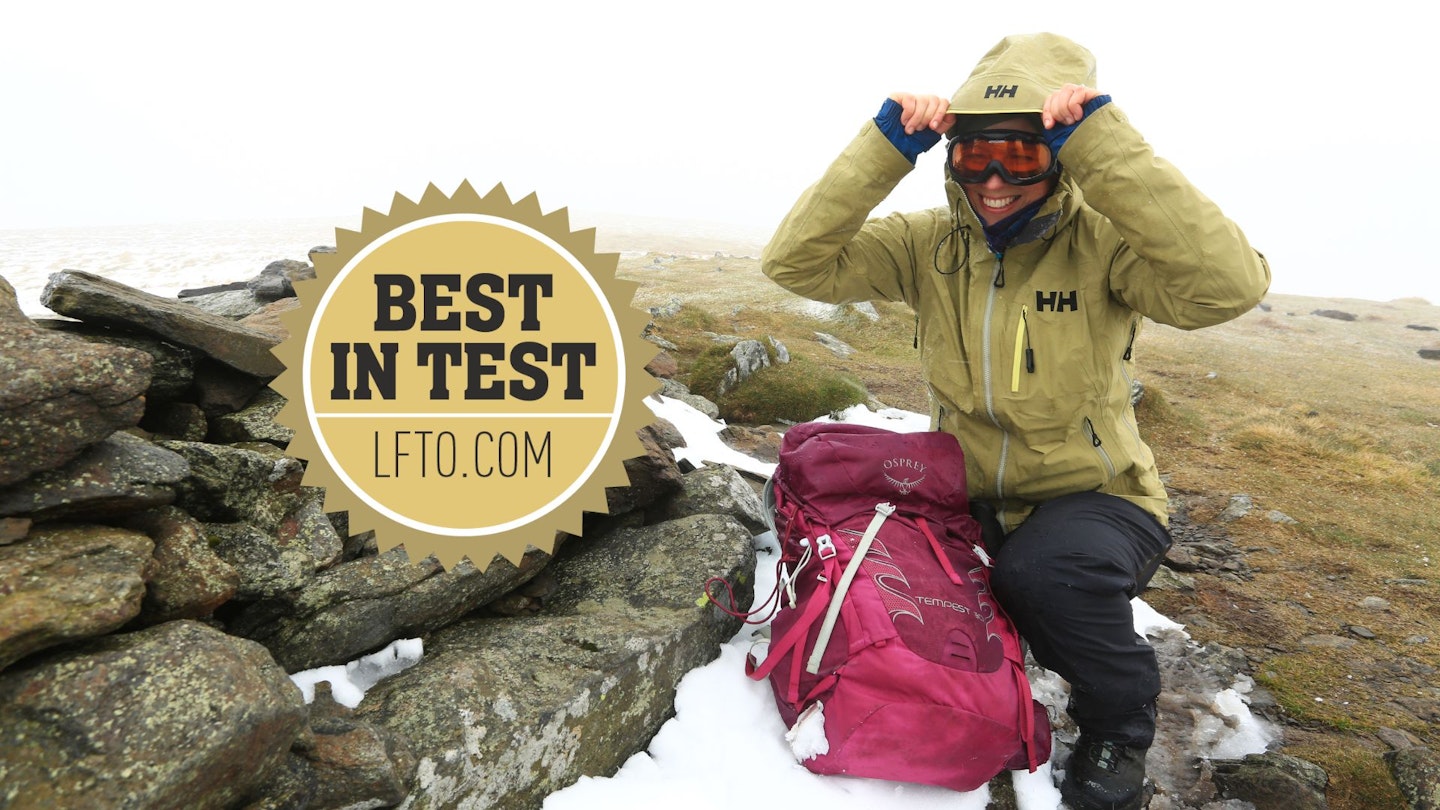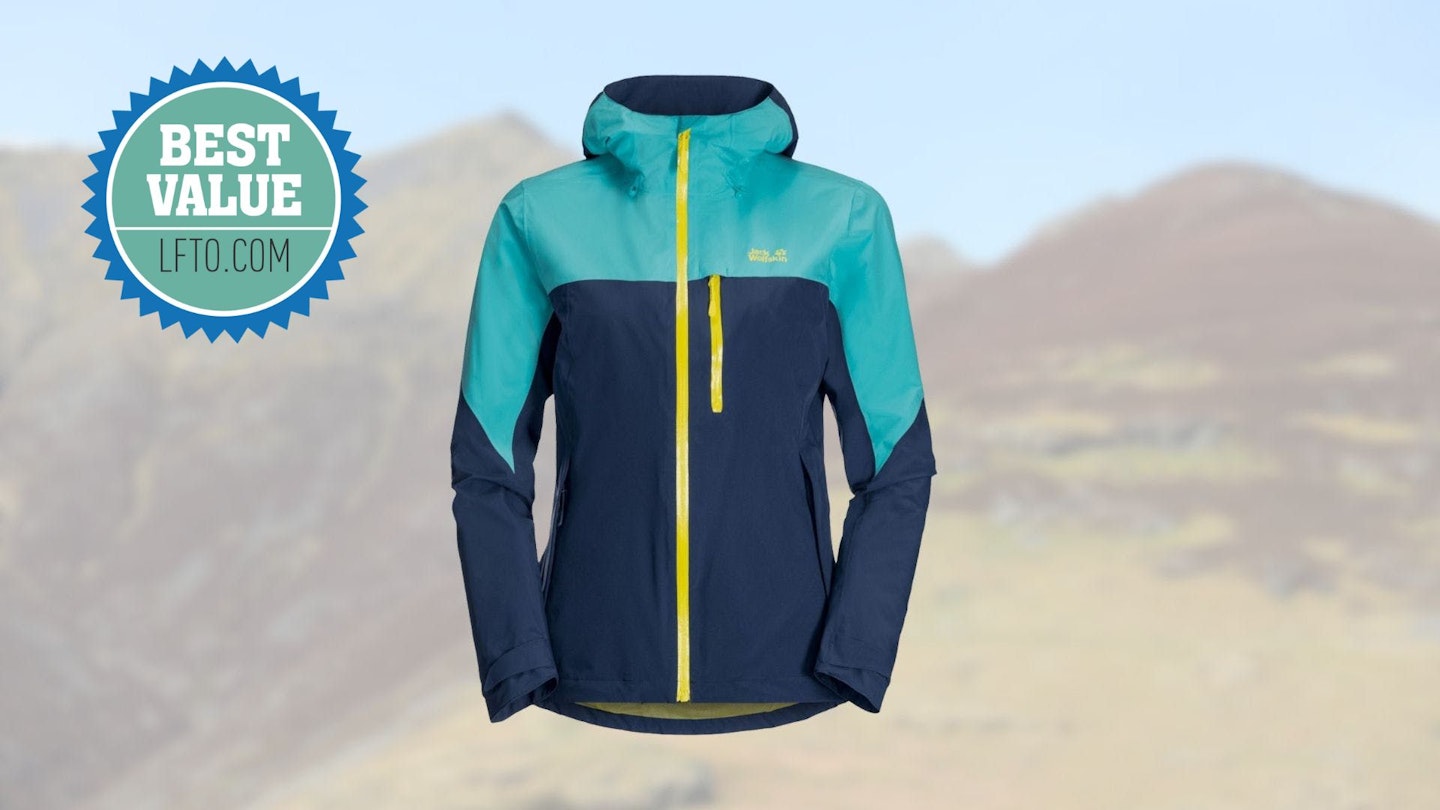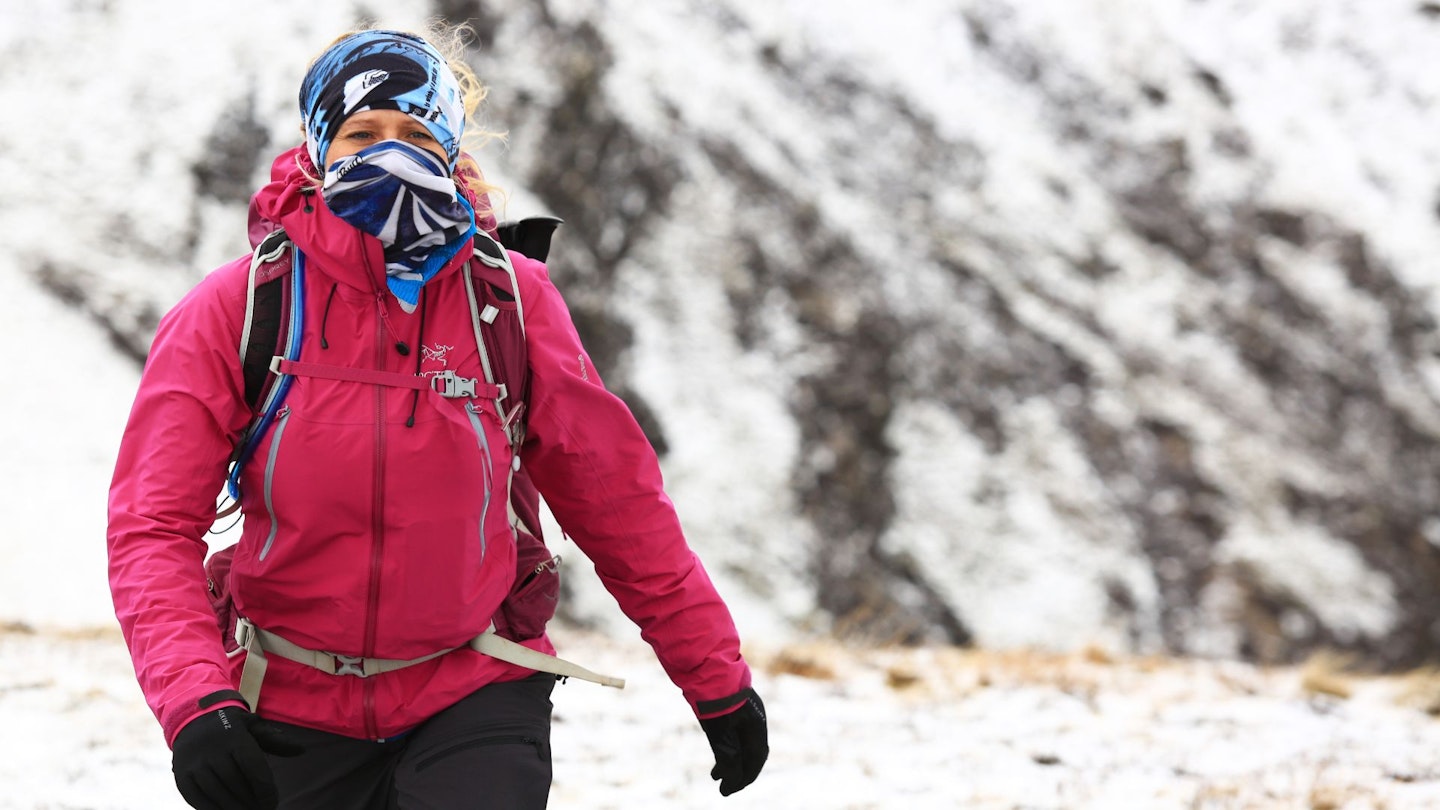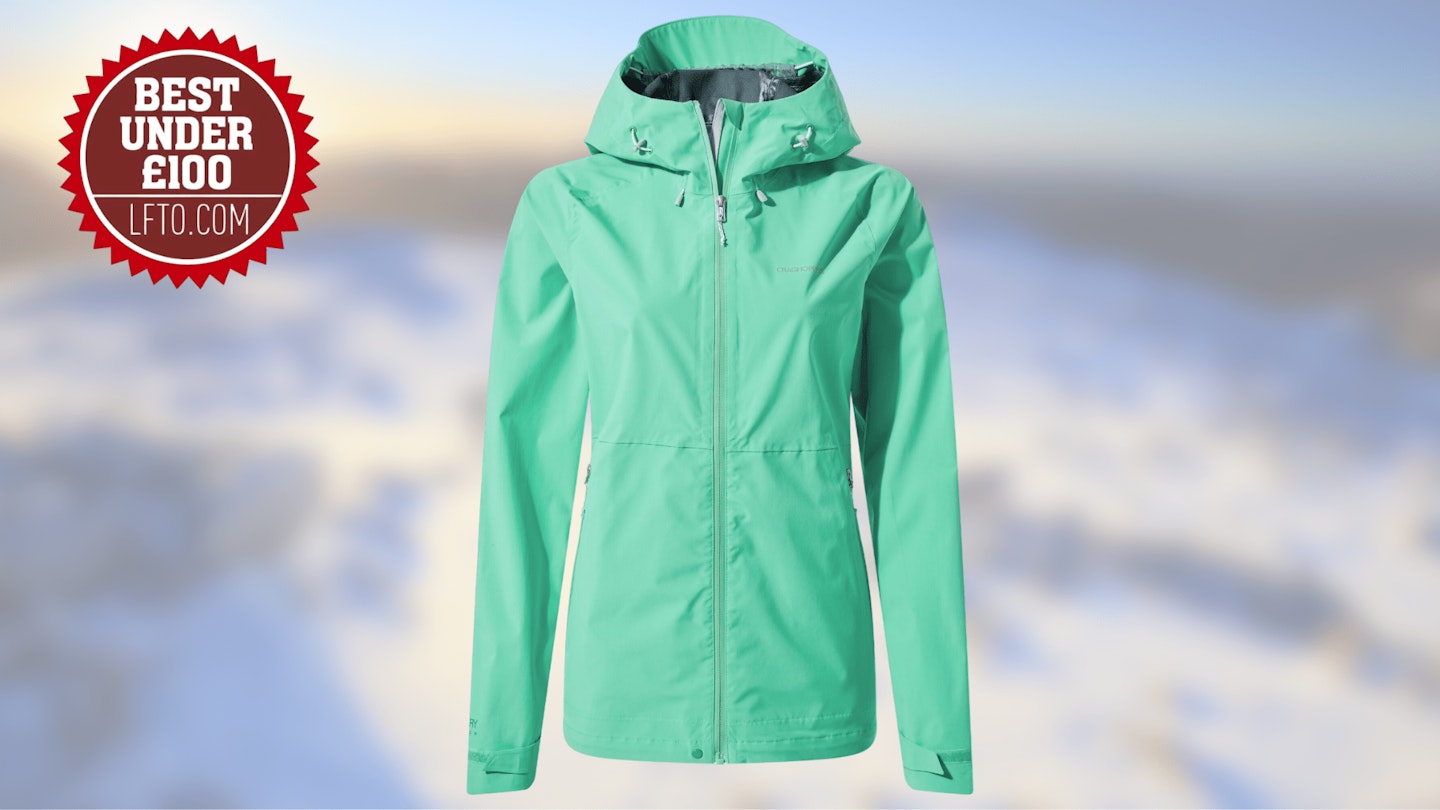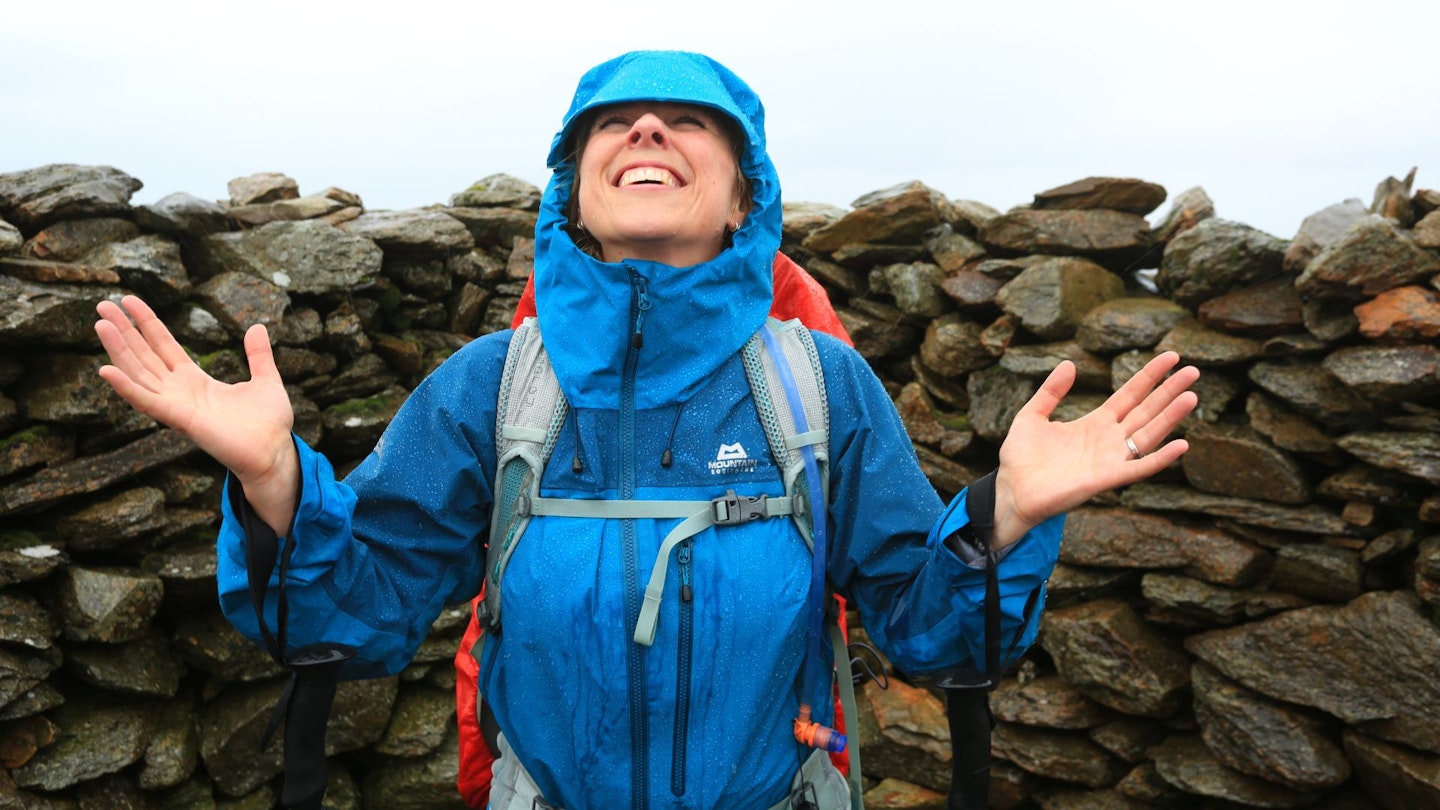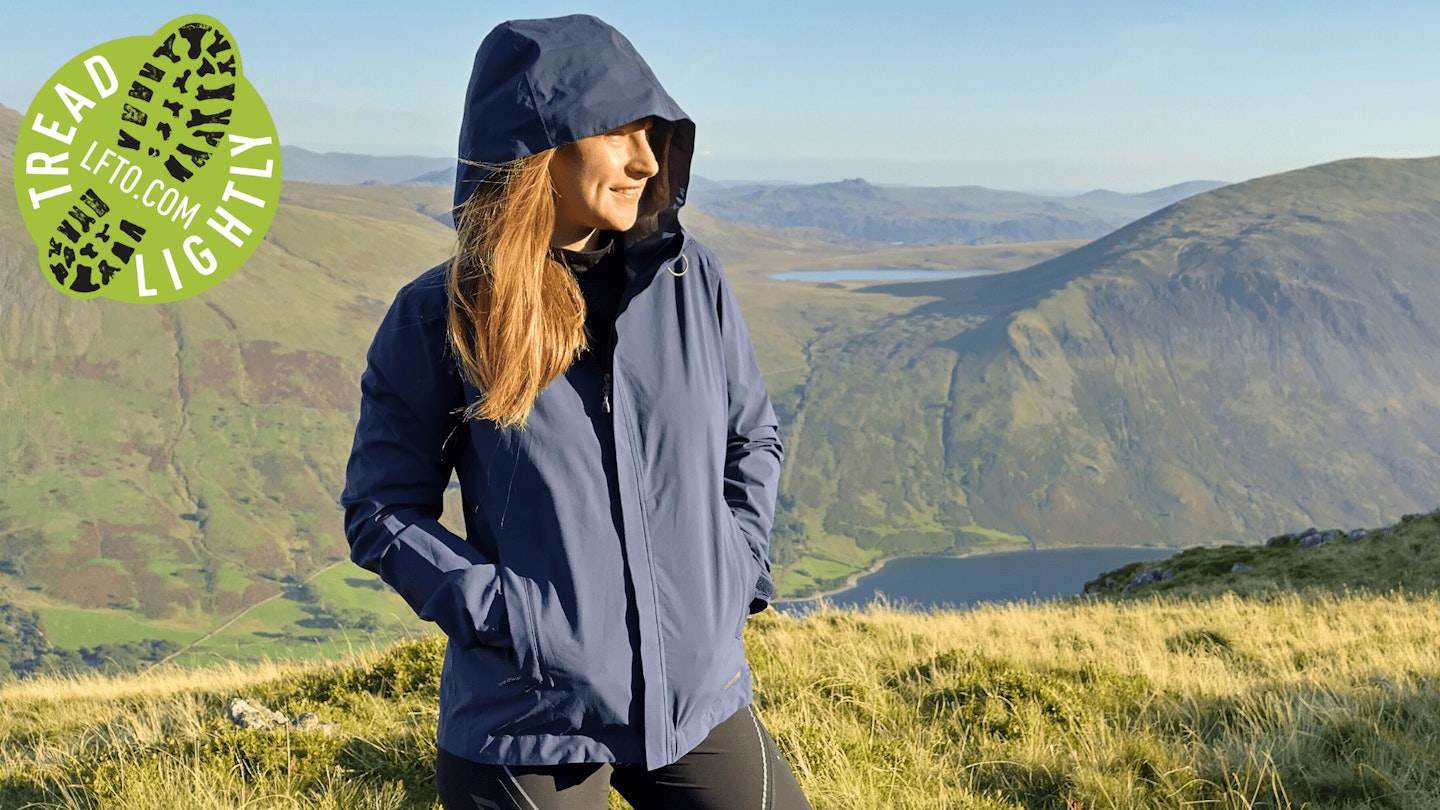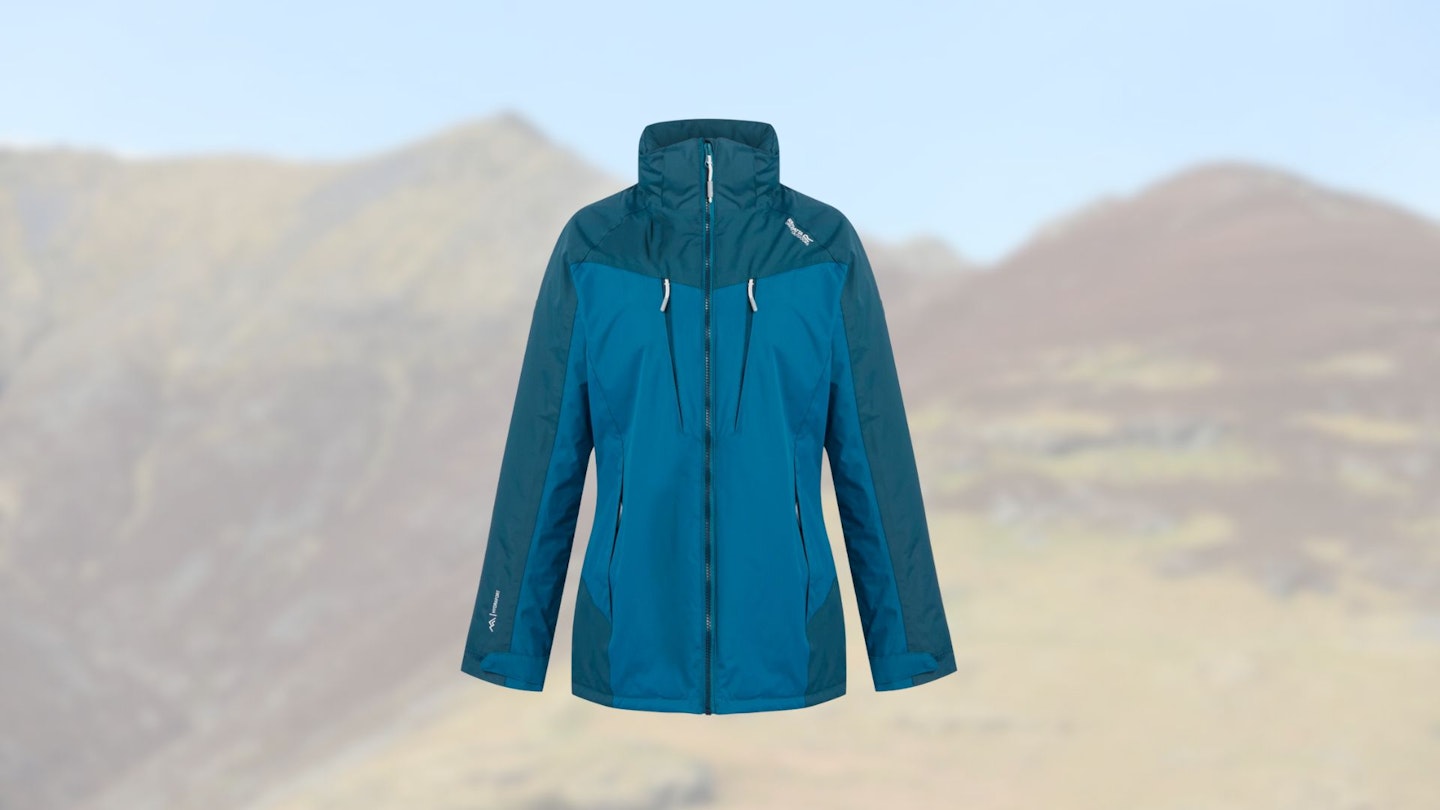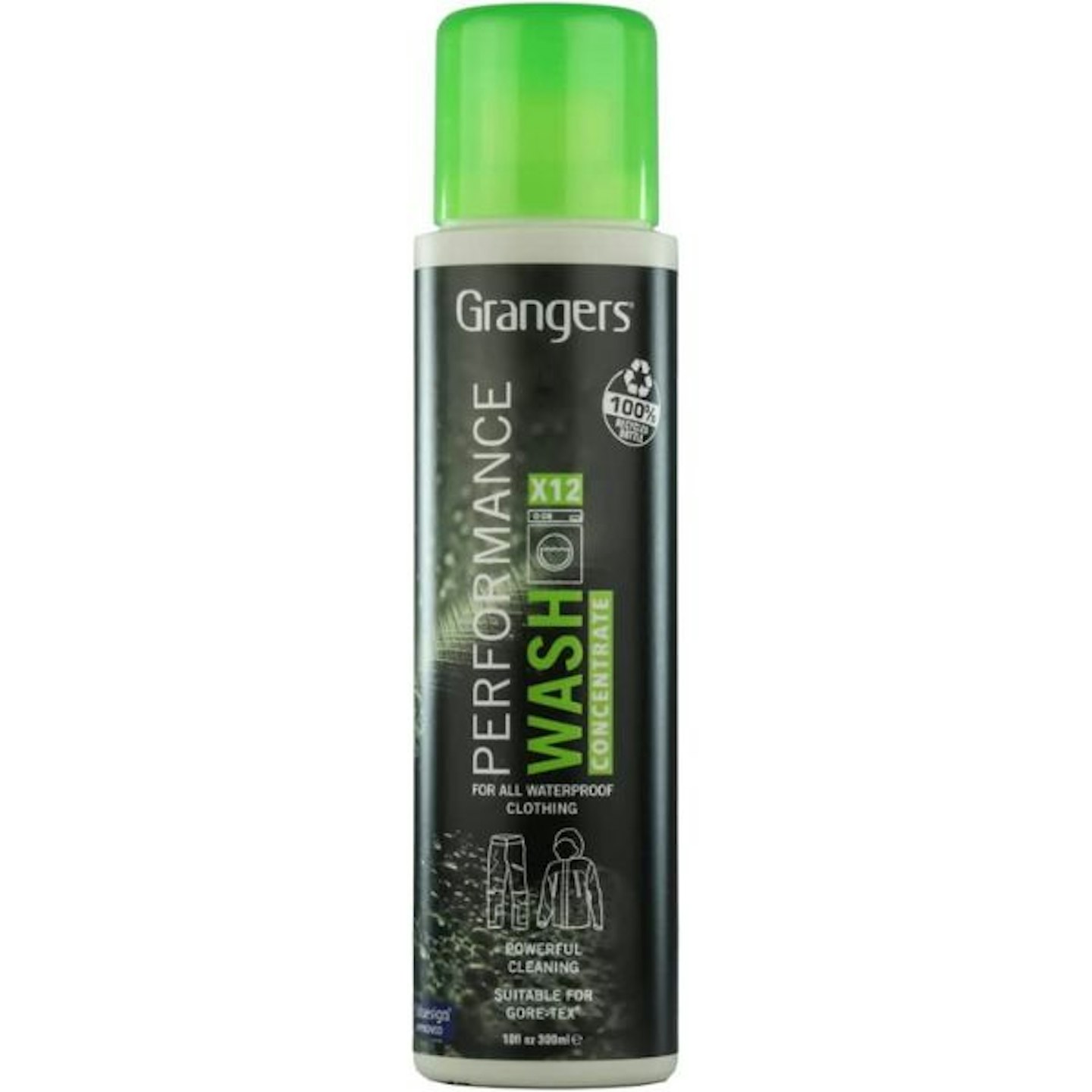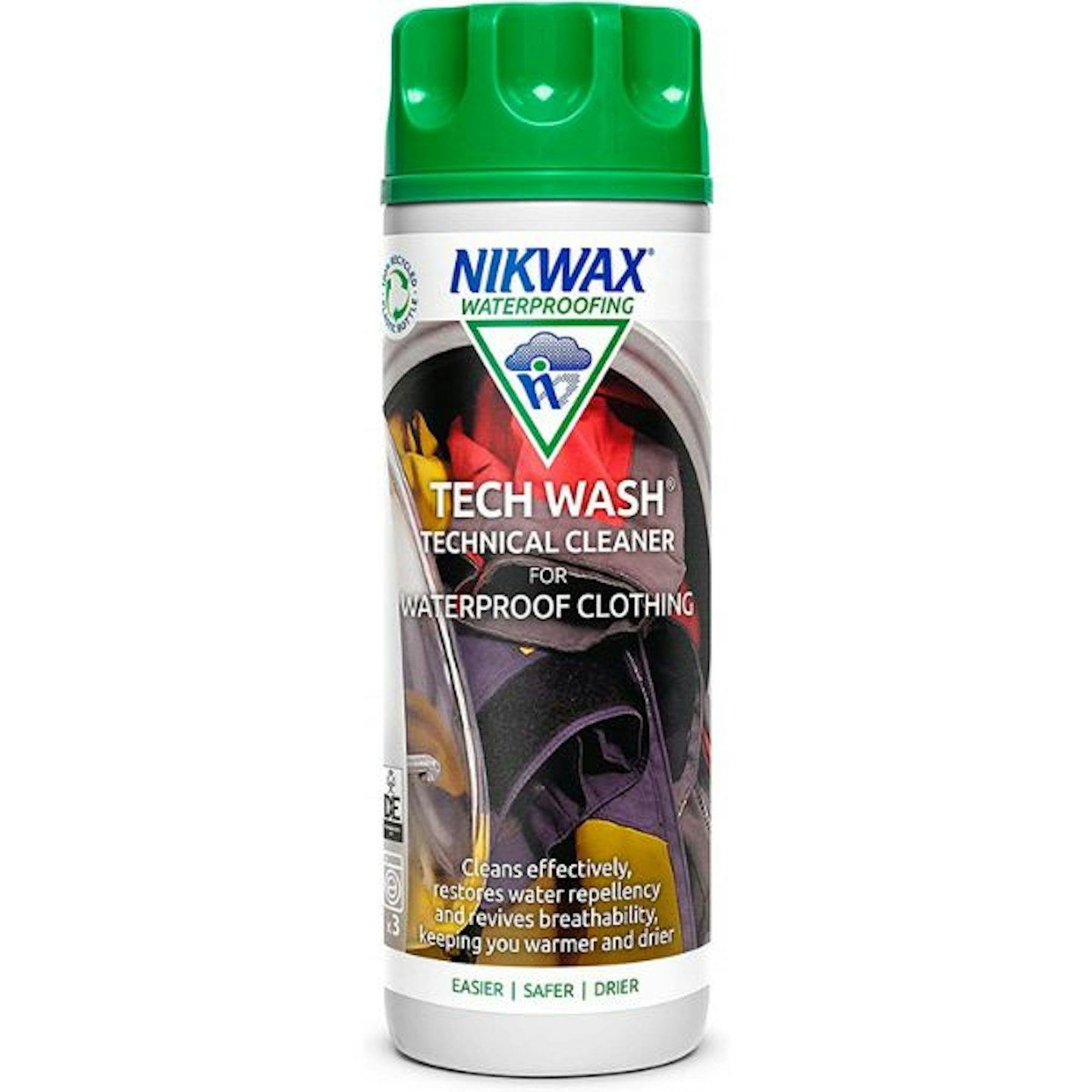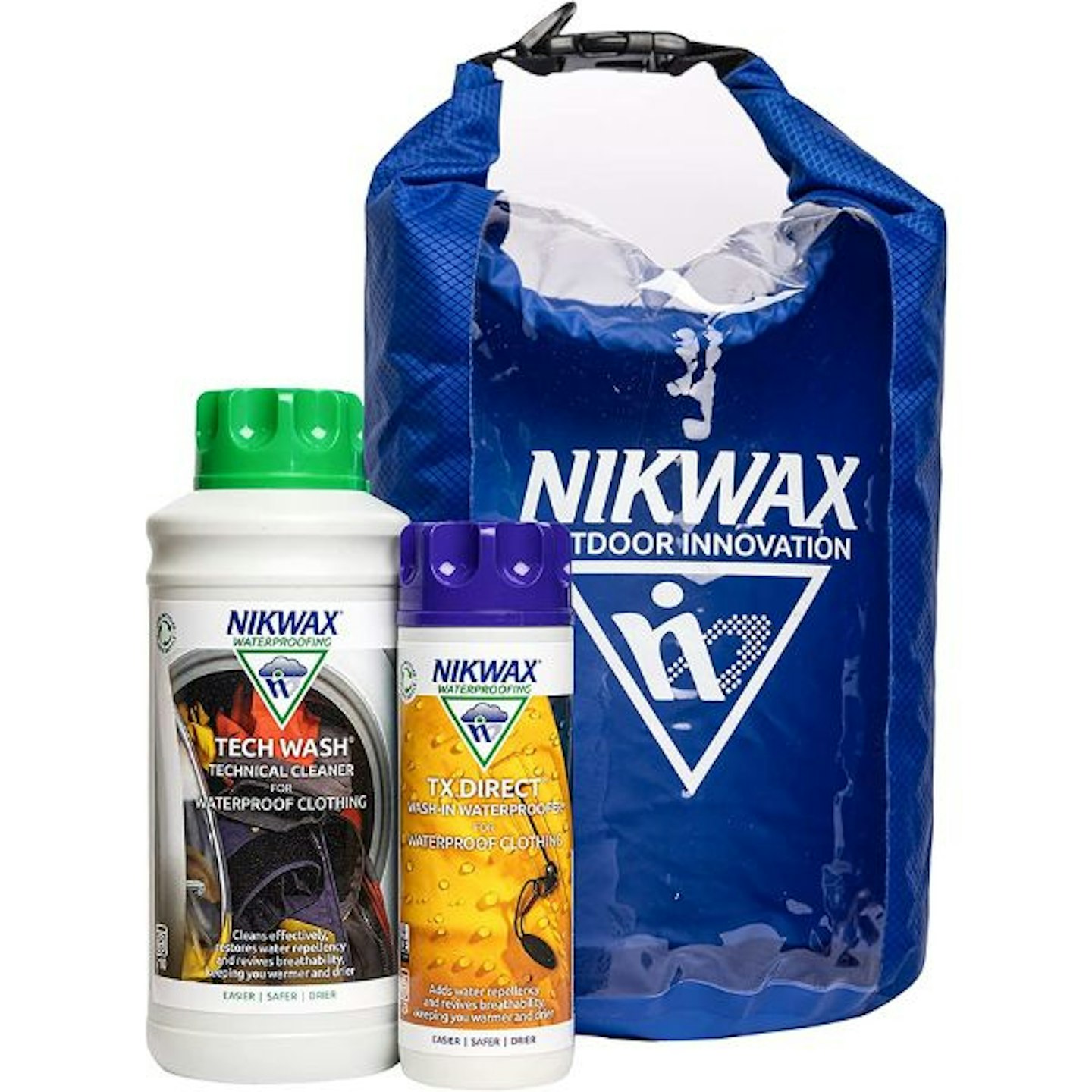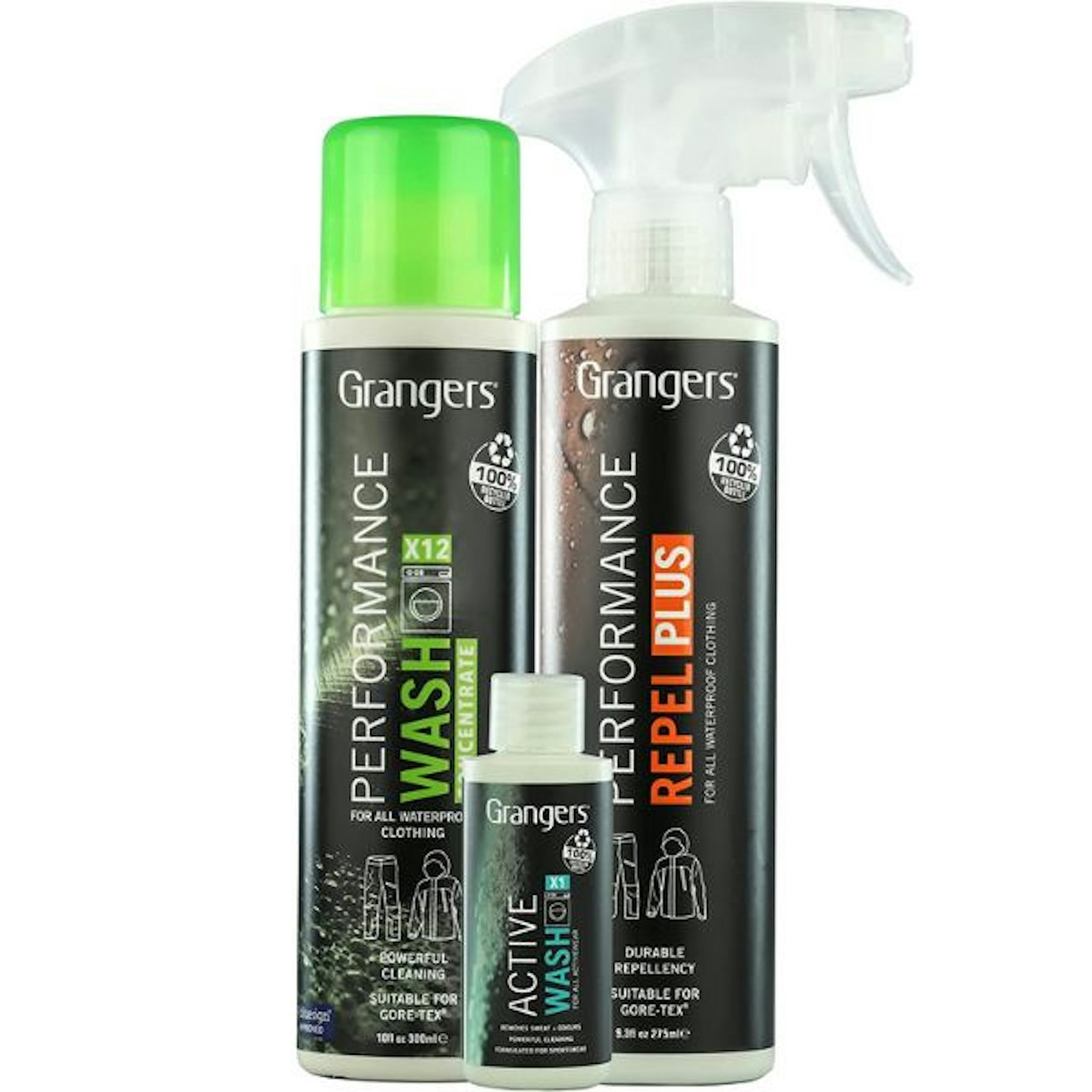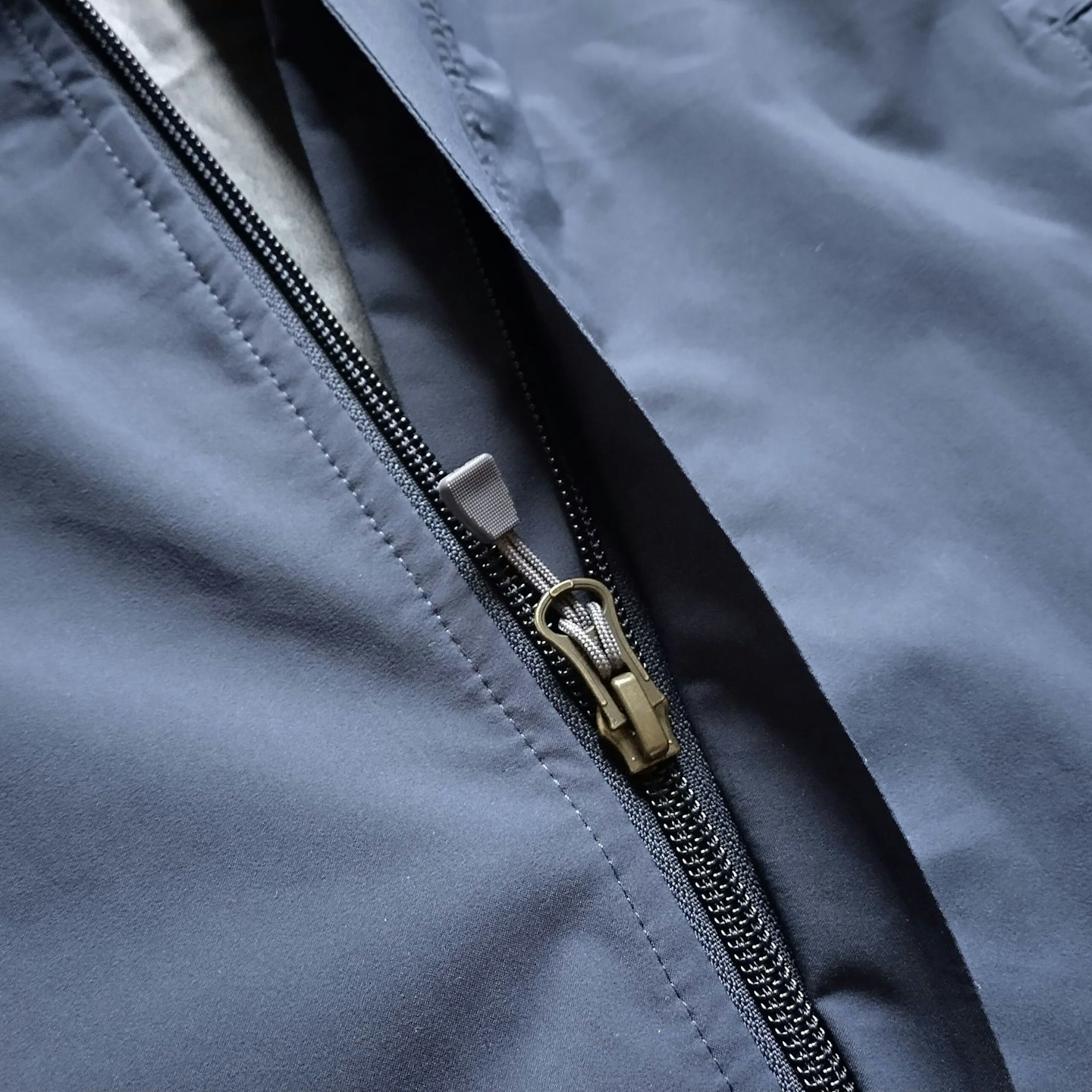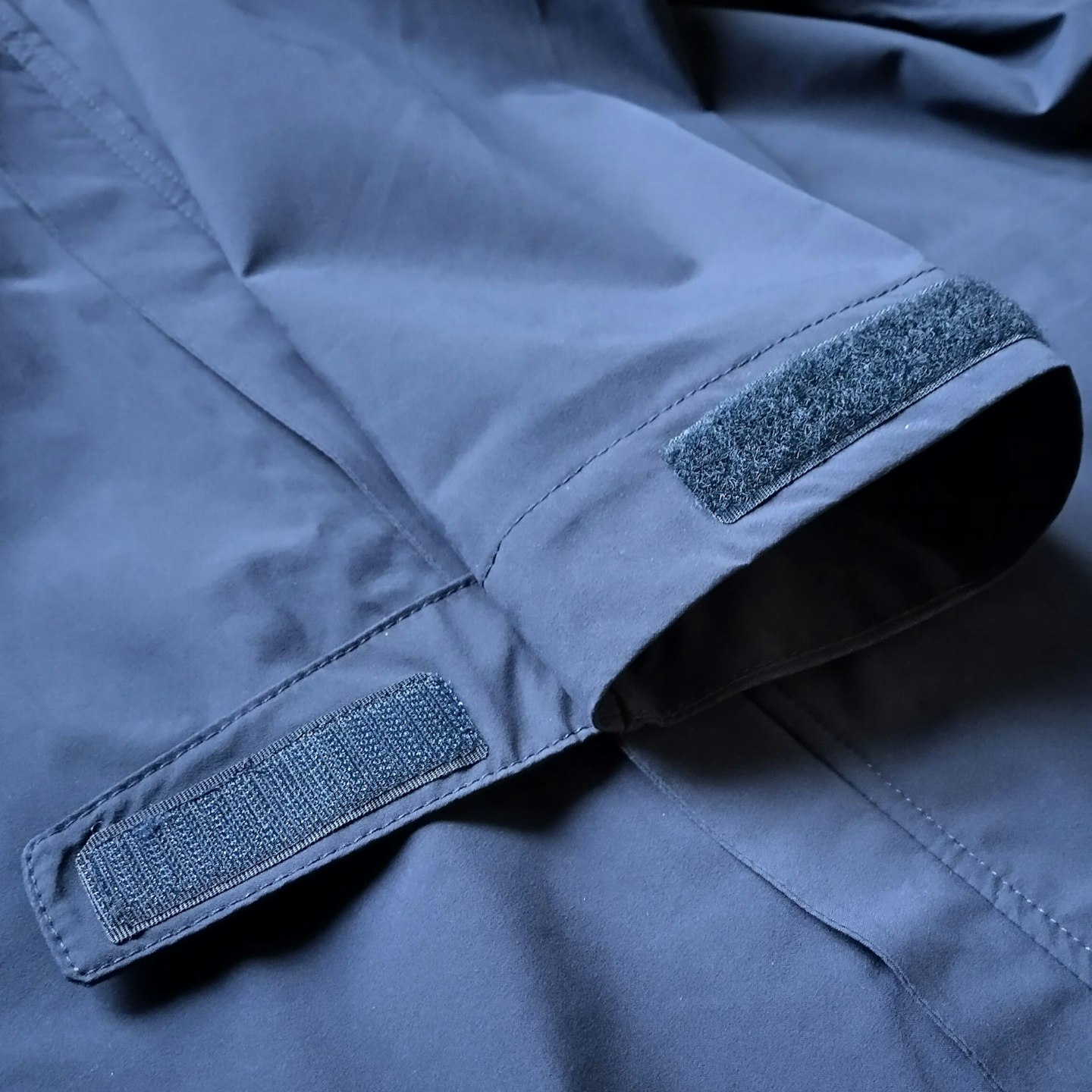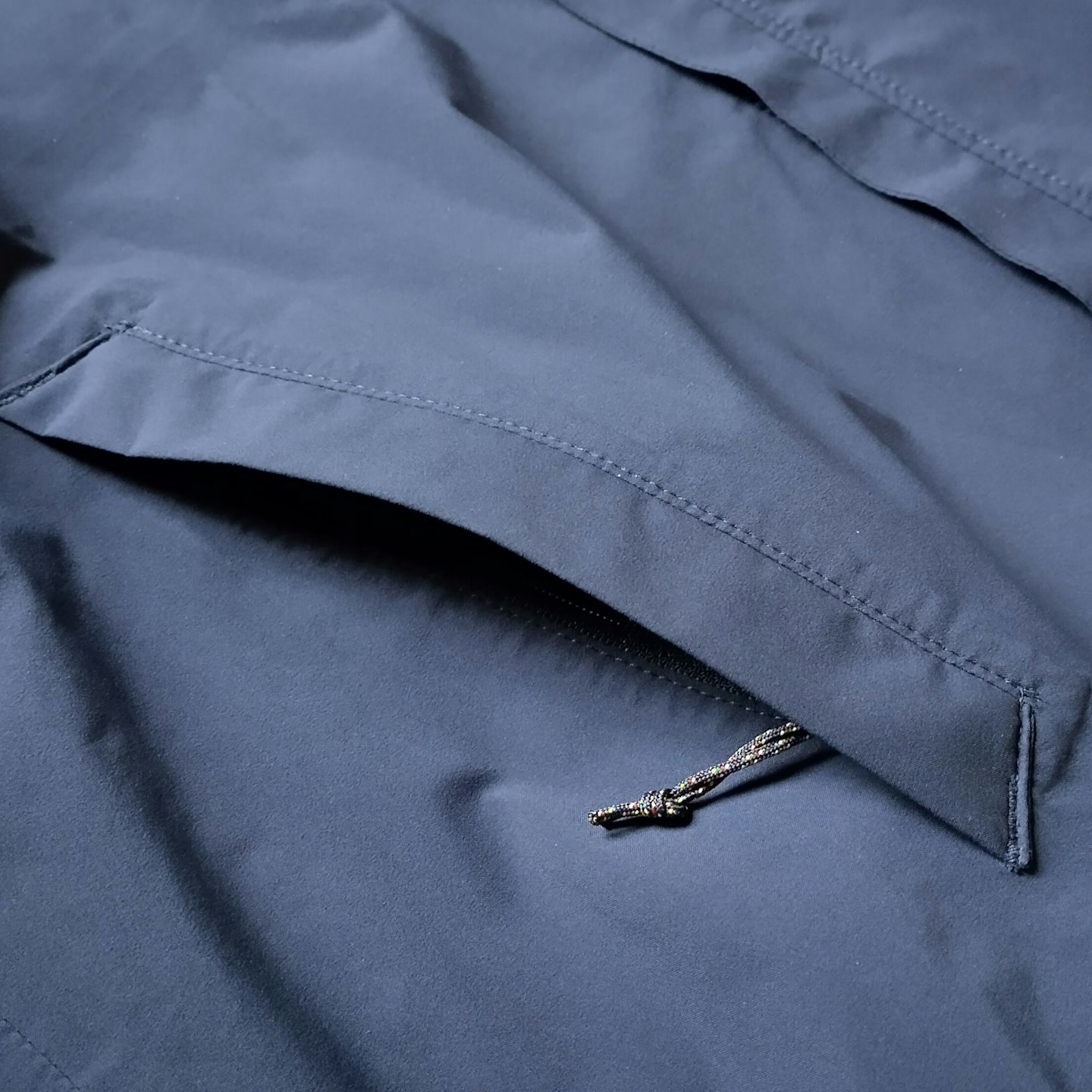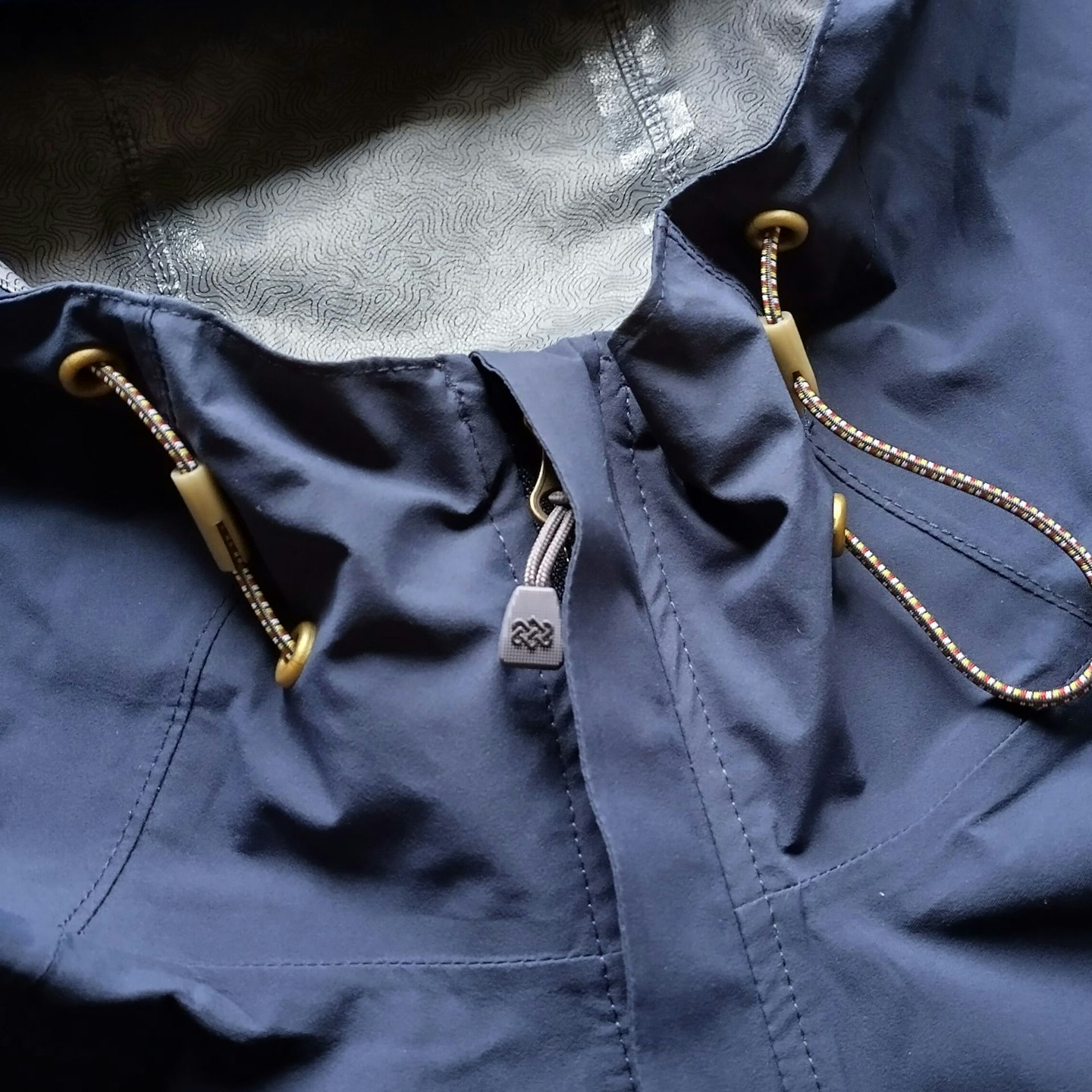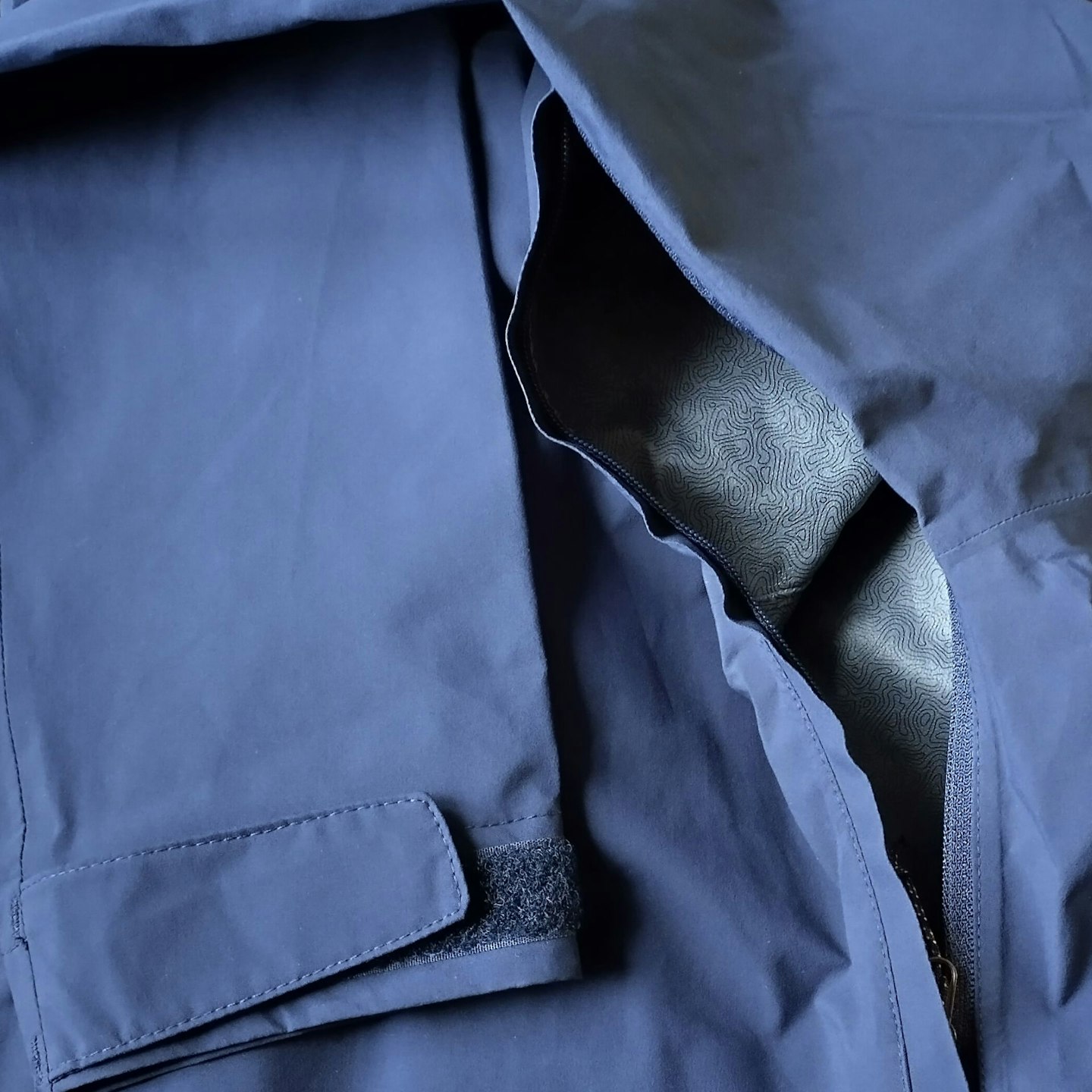At the top of any essential kit list for hiking is a waterproof jacket. Mountain weather is never easy to anticipate, nor is it willing to compromise. It'll rain. Or snow. Or hurl some other manner of hateful precipitation down onto you, as and when it likes. That means, if you're a female hiker, you'll need to come armed with the best women's waterproof jacket you can find.
The challenge is that there are hundreds of options to choose from when you go looking for the perfect waterproof jacket. Being female further complicates the mix (yet again), because women's sizing is often decided by a monkey pressing random numbers on a keyboard.
The good news, however, is our experienced team of female testers have been reviewing a wide range of women's waterproof jackets for years, so we are here to impart some knowledge as to what to look for when it comes to fit.
As well as being different shapes and sizes, you might also require your waterproof jacket to perform different functions. For example, if you're just walking the dog, there's no point spending £450 on a top-of-the-range mountain hard shell, but you'll still want something breathable and able to keep off the worst of the weather.
This guide outlines exactly what you'll need to look for, with some truly fantastic product recommendations spanning a full range of price and performance.
What are the best women's waterproof jackets of 2025?
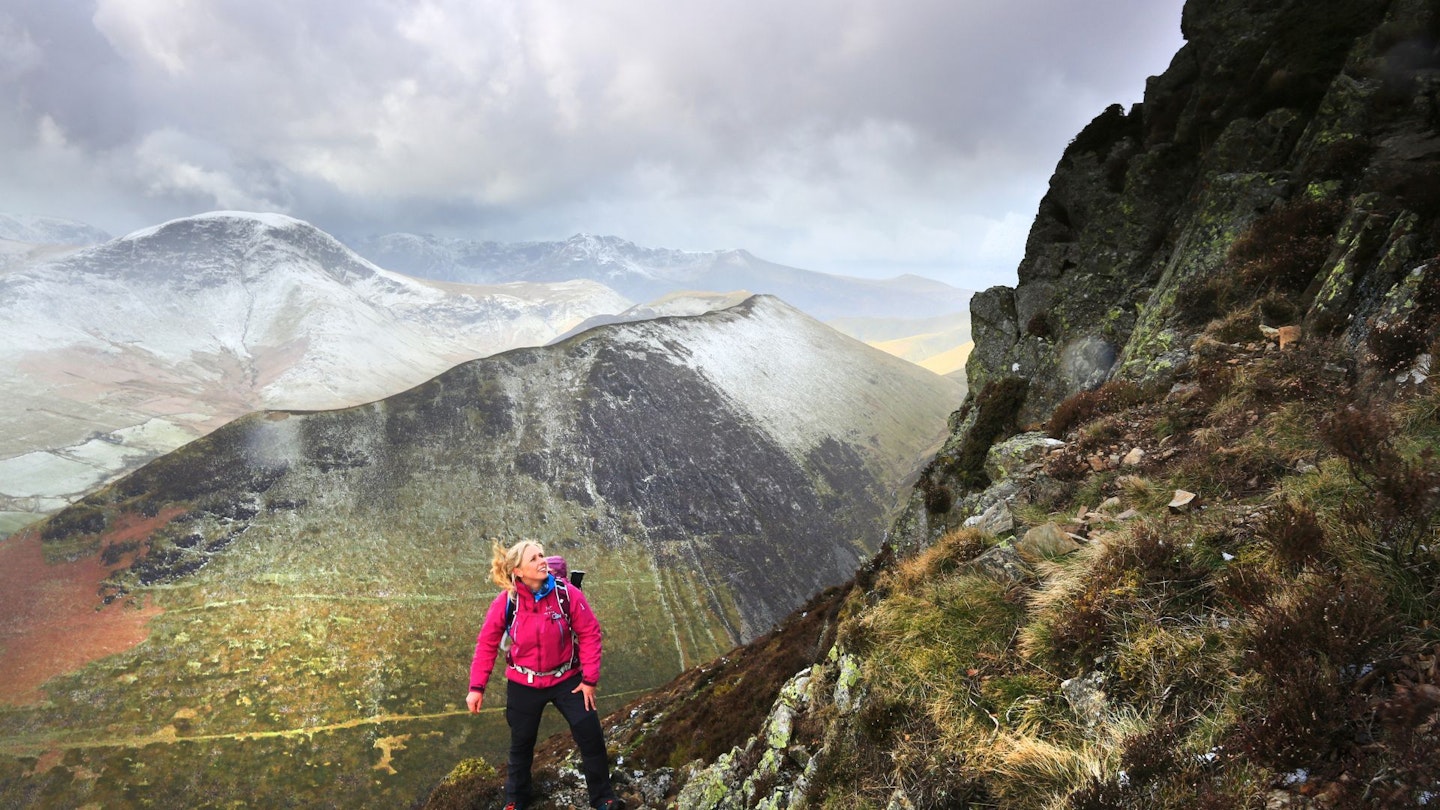
Best in Test: Helly Hansen Women's Odin 9 World Infinity Shell
Best Value: Jack Wolfskin GoHike W
Best lightweight waterproof jacket: The North Face FUTURELIGHT Frontier
Best winter waterproof jacket: Mountain Equipment Manaslu
Editor's note: This article was last updated in summer 2024, and is continually updated throughout the year as we test waterproof jackets throughout the main hiking seasons.
How we tested the best women's waterproof jackets
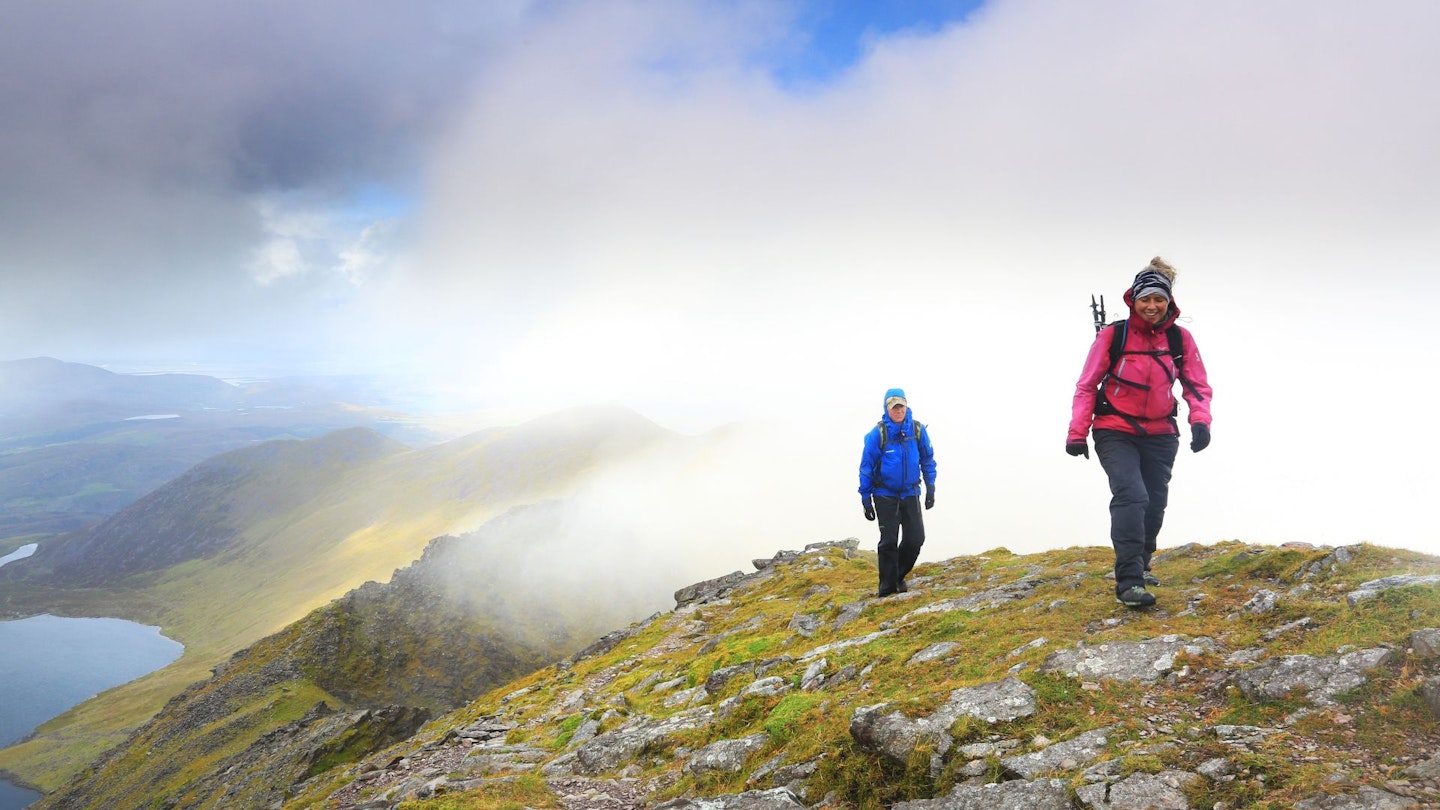
The waterproof jackets featured on this page are the top choices out of everything the lassies on the LFTO team have been testing this year. Reviews and recommendations have been provided by experienced freelance gear tester Sarah Ryan; LFTO writer Fliss Freeborn; and Trail magazine deputy editor Jenna Maryniak. Our testing trips have taken us to the Scottish Highlands, the Lakes, Snowdonia and the Yorkshire Dales.
We've used and abused these jackets on longer hikes, with multiple days carrying bags on long-distance trails. Overall, we're pretty certain in saying that every waterproof jacket in this article has been put through its paces in every type of weather and on every type of terrain it was designed for.
What do our testers look for?
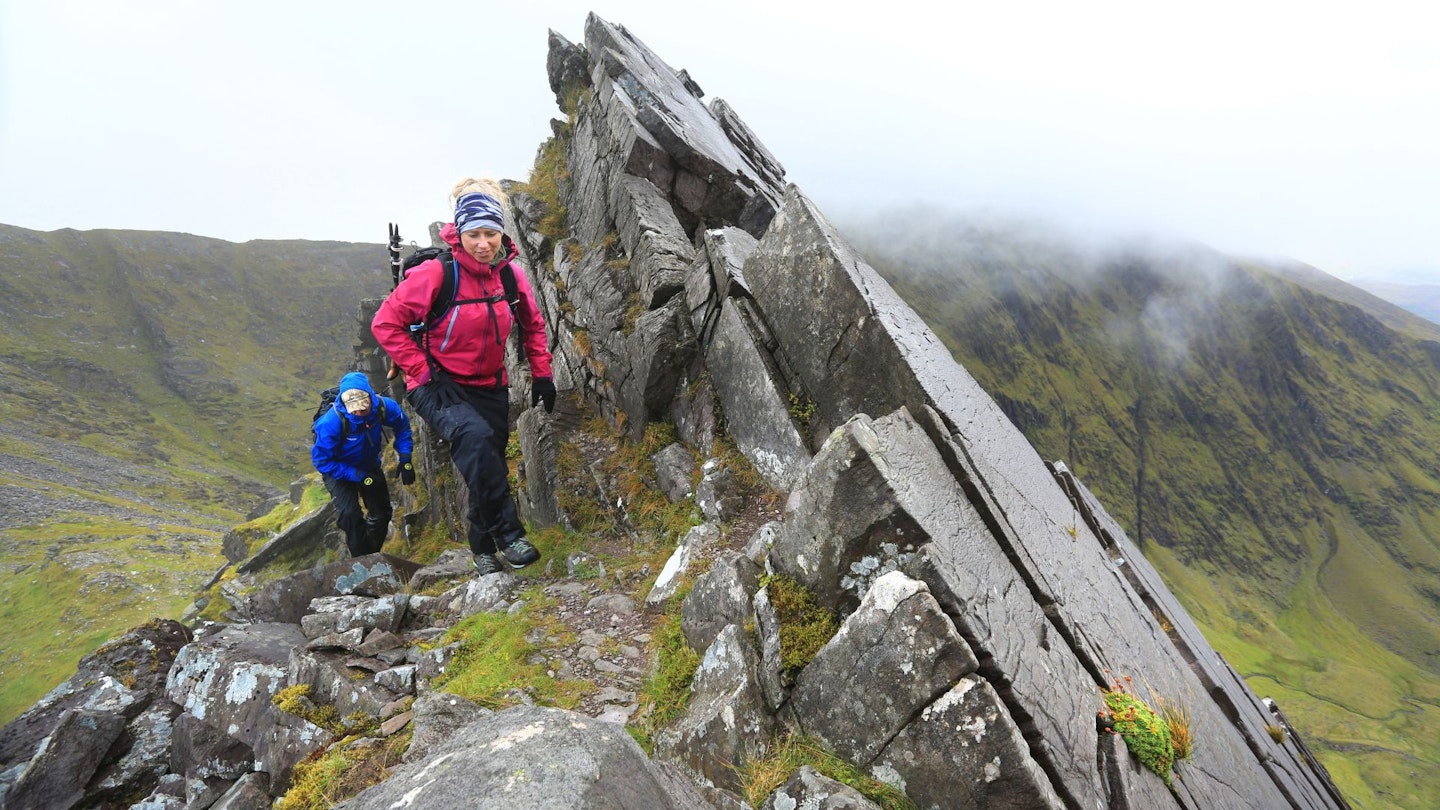
How well a waterproof jacket keeps out moisture is just the start of what we look for during our testing. We also look at how breathable and comfortable they are with relation to that waterproofing; how well they're made in terms of durability; whether they're sustainable and ethical; and how their features perform in real-world conditions. You know, in that relentless wind and rain that comes at you from all angles in Britain's hills and mountains. Additionally, as women, it's especially important to find jackets which fit curves properly, and appear in a wide range of sizes and fits.
We know LFTO's readers have a large range of uses for waterproof jackets, from weekend dog walking to gnarly winter summit bagging in the Cairngorms. That's why we always recommend a range of options with different abilities and price points.
CLICK HERE for more info on how we test gear at LFTO.
Best women's waterproof jackets reviewed:
This sporty-looking hard shell waterproof jacket from Norwegian brand Helly Hansen does everything right. The original Odin World Infinity won our Best in Test Award at Trail Magazine, and the women's version is equally ultralight, fully-featured, eco-friendly and mountain-ready. It’s a top-notch all-rounder with first-rate performance – even if the price is rather, well, Scandinavian.
This jacket features lots of extra bells and whistles compared to your standard hardshell. Nifty features include an emergency whistle attached to the chest pocket and side zips (rather than pit zips) for ventilation when required. You'll also get a built-in RECCO transponder for rescue situations, but the biggest innovation is the way Helly Hansen has created a 3-layer construction without the use of chemical solvents. The jacket’s membrane also has fewer negative environmental impacts compared to other harmful membrane technologies.
The fit is as good as it can be, with a helmet-compatible hood and a slim, flattering cut which still leaves room for layers underneath. And yes, the price tag is hefty, but the Odin is designed to last, with the brand claiming Lifa Ininity Pro never needs re-proofing. If you look at it as a long-term investment for your outdoor comfort, then this jacket is a cracking bet for any weather the UK (and beyond) can throw at you.
Pros
- Permanent, PFC-free DWR
- Excellent performance
- Great fit
- Packed with features
Cons
- Expensive
| Weight | 500g |
| Fabric | 3-layer LIFA INFINITY PRO w/ PFC-free DWR |
| Women's sizes | XS - XL |
When choosing a waterproof jacket, you normally have to choose between lined, warm and heavy; or unlined, light and cool. But here comes the Go Hike from Jack Wolfskin, clearing its throat and elbowing its way between the two.
It has the athletic cut of a hard shell teamed with a soft mesh lining: snug while still being packable; comfortable yet only slightly heavier than your standard shell. It’s ideal for chilly days when we want to move with more ease, or for brisk showery walks.
It’s not the most mobile around the shoulders but, thanks to some stretch in the fabric, it’s nevertheless suited to all but the most contorting of moves. It also has your standard layout of pockets: two handwarmers; one outer chest pocket and one inner. This tends to be my favourite arrangement, with enough space to keep extras handy, leaving these silky-lined pockets for your paws.
For all the comfort elsewhere, we found the hood a little less snug. Though it fits neatly and is fully adjustable, it isn’t very deep and left my face feeling a little exposed. Overall though, it’s warm, comfy, athletic and, at the target price, exceptional value.
Pros
- Good pocket layout
- Sustainable
- Good fit generally
- Can usually be found discounted
Cons
- Hood fit could be better
| Weight | 378g |
| Fabric | Recycled and bluesign-approved 2-layer polyester w/ Texapore Pro (20,000mm HH) |
| Women's sizes | XS - 2XL |
On first impressions, you might be expecting a slightly more substantial jacket from Arc'teryx. But despite weighting just 350g, the Beta LT women's jacket performs excellently, standing up to heavy downpours and buffeting conditions just as well as crunchier, more rigid hard shells.
Overall, this is an extremely lightweight and packable three-layer Gore-Tex shell designed to provide high-grade weather protection at minimum weight. It’s had a few tweaks over time, with previous versions earning ‘Best in Test’ awards in our magazine's lightweight waterproof jackets tests. It's not cheap, no, but the Beta LT achieves levels of lightweight performance few other brands can match.
In terms of sustainability, the Gore-Tex membrane is bluesign-approved. The jacket itself is made in Indonesia, in a factory that is certified on environmental management (ISO14001), quality management (ISO9001), health and safety (OHSAS18001) and social compliance (SA8000). In addition, they hold a gender equality certification (EDGE) and have won accolades in Indonesia for their work in this area. Arc’teryx has been working with the facility since 2014 and they’ve been training on Arc’teryx Gore-Tex methods since 2019.
This jacket has recently been revised with a new Gore-Tex membrane, which we will be testing soon, so watch this space.
Pros
- Lightweight
- Superb performance
- More durable than it looks
- Good range of sizes
Cons
- Trimmer fit not to everyone's taste
| Weight | 350g |
| Fabric | 30D nylon with bluesign-approved 3L Gore-Tex (28,000mm HH) |
| Women's sizes | 2XS - 2XL |
You can go two ways with waterproof jackets. There’s the warm, lined, feature-packed kind which keep the howling wind at bay but can trap heat a little too effectively, and the simple shell, which is cooler, lighter and more packable. The Brontë is the latter: a stripped-back 2.5-layer shell made with Craghoppers’ AquaDry membrane.
It has the expected benefits (low weight, packability) plus, with a little stretch and articulated sleeves, good ease of movement – especially when using walking poles.
It has some drawbacks though: the integrated collar and hood come together slightly awkwardly, meaning I feel a little cool around the back of the neck when the hood is down. And the internal pocket is weirdly placed, low down in the torso. You have to unzip the jacket almost entirely to access it, which makes it unviable in bad weather.
Grumbles aside, what we have here is an great medium-weight waterproof found in many outlets for around the £50 mark, making it outstanding value for money.
Pros
- Articulated sleeves
- Lightweight
- Great waterproofing
- Usually found on discount
Cons
- Odd hood configuration
- Poor access to internal pockets
| Weight | 360g |
| Fabric | Partially recycled polyester 2.5-layer AquaDry Membrane (15,000mm HH) |
| Women's sizes | 8 - 20 |
Look, it's got an RRP of £500. That's a month's rent for many people in the UK. But if you're after something that you could feasibly wear while standing under a waterfall for an hour, followed by being pelted with snow, ice, sleet, hail, and then dunked in a swimming pool for good measure - and still stay dry at the end of it - then the Gore-Tex Pro of the Manaslu won’t let you down.
The Manaslu is incredibly durably constructed, but coming in at 460g, it’s surprisingly lightweight for the heft that it brings. It’s also very breathable; if you’re going uphill in the pouring rain, a base-layer with this shell on top will keep you as cool as a cucumber.
Feature wise, it’s got everything a gal could want from a heavy-duty mountaineering jacket: accessible pockets while wearing a harness; full helmet and goggle-compatible hood; visors; pit zips; coffee maker; chip-and-pin device. We may have made the last two up but the point is if you want bells and whistles you’ll get them here in spades. Oh, everything works faultlessly.
The only thing we'd say is that because its designed for hard mountain storms, there's room for lots of layers underneath; if you're not wearing a helmet or hat, then the hood could seem a little loose (but there are of course, draws to tighten it). Other than that, it's pretty much perfect.
One of those annoying things about gear is that if something performs brilliantly, while weighing very little, then it probably costs a small fortune. On the plus side, however, Mountain Equipment offers a Lifetime Guarantee for any defects. Send it back to them and they’ll replace it for free. Bargain?
Pros
- Incredibly waterproof
- Fantastic breathability
- Brilliant features
- Very durable
Cons
- Overkill for most
| Weight | 460g |
| Fabric | 40D and 80D nylon w/ 3-layer Gore-Tex Pro (28,000mm HH) |
| Women's sizes | 8 - 16 |
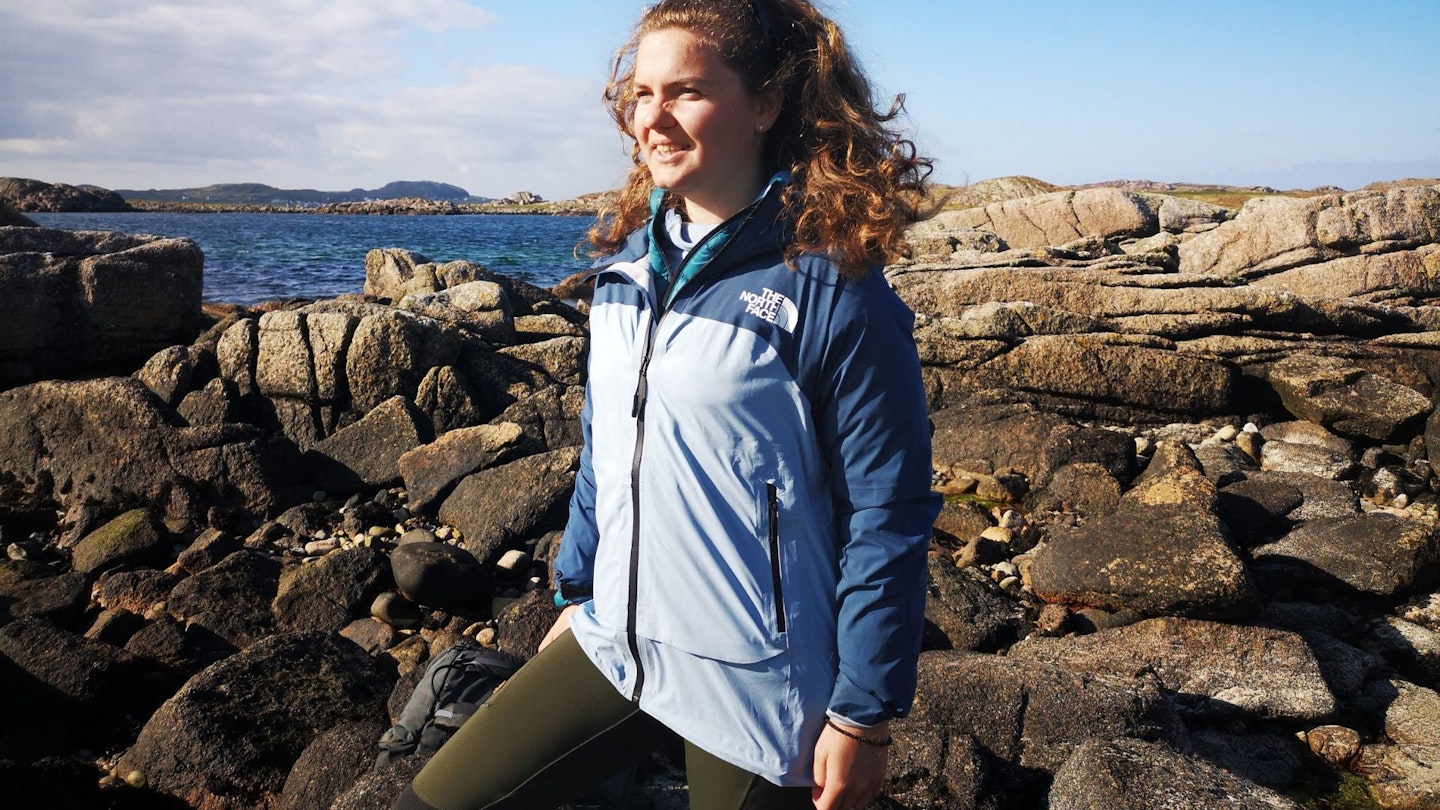 LFTO
LFTOwww.alpinetrek.co.uk
The North Face Frontier Futurelight lightweight waterproof jacket is a high-performance, compact option for outdoor enthusiasts, weighing just 295g. Priced at £360, it offers excellent waterproofing and breathability, ideal for unpredictable weather conditions. It packs down to half the size of a Nalgene bottle, making it highly portable.
The jacket features a comfortable fit with enough room for layering, though it can be a bit baggy around the chest and torso without extra layers. The dropped hem provides extra coverage, preventing a wet backside. Noteworthy features include a peaked hood with a two-way drawstring, strong Velcro sleeve cuffs, laminated zips, and mesh inner dump pockets for storing small items securely. While the pit-zips are minimal, the Futurelight fabric’s breathability compensates for this.
Futurelight, by the way, is The North Face's three-layer waterproof fabric made from nanospun polyurethane fibers. It's also the main event here, excelling in keeping users dry and comfortable, with a softshell-like feel that avoids the typical crinkle of other waterproof materials. The non-PFC DWR treatment effectively repels water too, even in some calamitously heavy storm showers we experienced on the Isle of Mull.
The Frontier Futurelight jacket also scores well on sustainability, using 100% recycled polyester ripstop for the body fabric and a non-toxic DWR treatment. However, more recycled materials could be used in other parts of the jacket.
Though pricey, it is £110 cheaper than the popular Arc'teryx Beta Lightweight Jacket - and lighter by 45g, making it a relative bargain. Ideal for shoulder seasons and summer downpours, this is a solid investment for those who don’t venture into extreme winter conditions but still require reliable protection.
Read our full The North Face Women's Frontier Futurelight Jacket review
Pros
- Incredibly breathable
- Very waterproof
- Small pack size
- Lightweight
Cons
- High performance commands a premium price
- Somewhat ineffective pit zips
| Weight | 295g (Size small) |
| Fabric | 3-layer FUTURELIGHT 100% recycled polyester w/ PFC-free DWR |
| Men's sizes | S - 2XL |
| Women's sizes | XS - 3XL |
We try not to be swayed too much by colour but it’s hard sometimes, especially when you find a jacket in such unusual earthy tones. It’s an immediate plus for us, but what else does the Nima have going for it?
Most notably, it is exceptionally light and flexible, with particularly good mobility around the shoulders. I’d scramble up and over Peak District gritstone boulders without hesitation.
In payment for that low weight though, you must offer up your pockets. There are only two, for your hands. The hood too is very simple, with no rear adjustment, and the front toggles aren’t the most secure.
But we found that it still cocooned my head almost perfectly and the integrated collar felt fairly warm even when the hood was down. There’s also an outer storm flap that offers extra protection from wind and water while also giving the jacket a neat, sleek look. It’s our jacket of choice here for more gymnastic or athletic outings, where we might want to scramble up a rocky face or move at a faster pace.
One of the other huge strong points with this jacket is its eco credentials. Apart from being recycled and PFC-free, the brand has a mission to support Nepalese schoolchildren, and employment opportunities in Nepal through its Handcrafted Collection, which we think is pretty cool.
Pros
- Lovely colour choices
- Lightweight and flexible
- Sustainable
- Pit zips
- Double stormflaps
Cons
- No hood adjustment
- Only two pockets
| Weight | 290g |
| Fabric | Bluesign-approved and recycled 2.5-layer Sukatec w/ PFC-free DWR (10,000mm HH) |
| Women's sizes | XS - 2XL |
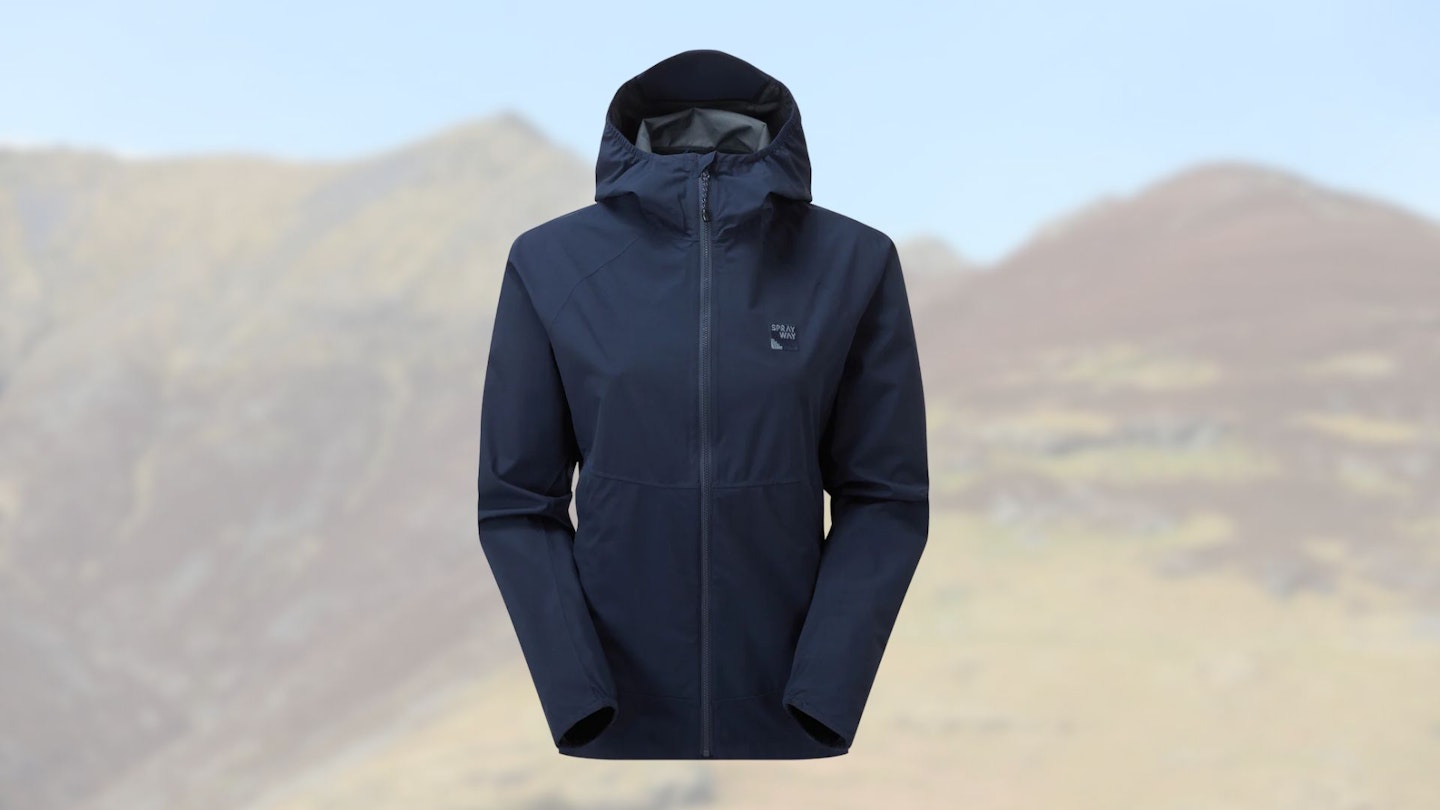
www.castlebergoutdoors.co.uk
The Fen is a very high-spec 2.5-layer jacket for its price: lightweight at just 250g, powered by Sprayway’s dependable HydroDRY membrane, soft and sleek to the touch, and packed with refinements such as a peaked hood, cowled cuffs and a good-sized chest pocket. I
We’ve especially enjoyed it on hill walks, where its low weight, athletic cut and excellent breathability combine really well on energetic ascents, keeping me dry in the rain whilst never allowing the heat to build up too much.
The Fen lacks the firmness and crinkle factor that add reassurance in all-day wind and rain, but it’s perfect for those who want a lighter, cooler option. Yes, it’s sad that this kind of jacket used to RRP under that three-figure tidemark – but we all know why, and it’s no fault of Sprayway.
Pros
- Great value
- Lightweight
- Peaked hood
- Cowled cuffs
Cons
- Not suitable for wintery downpours
- No hem drawcord
| Weight | 250g |
| Fabric | HydroDRY 2.5-layer polyester w/ PFC-free DWR |
| Women's sizes | 8 - 18 |
For the price, especially on sale, this is an absolute bargain. Sturdy, warm and comfortable with some neat features and one unusual one. That’s the inner pocket, located not at the chest but just above the lower hem so you can only access it with the jacket open to the waist and the elements.
Initially, we thought this was a terrible idea but it revealed itself to be a good place to keep valuables that you might want quick but infrequent access to – like a purse. Or found treasures like a polished orb of quartz or a good leaf. This works because it’s teamed with two hand and two outer chest pockets, both phone- sized. As an occasional glasses wearer, our tester found this helpful for stashing specs in one and phone in the other, with both in easy reach with no fear of either getting scratched. Good if you’re left- handed too.
We also particularly like the free-standing collar, which zips up over the chin with the hood down, helping it feel snug and protective. This is quite a heavy jacket, and the shell is thick and quite stiff. It’s not the most flexible and can lead to overheating – but it does feel very protective. But when it's often found for more than 50% off, who's to argue?
Pros
- Good value
- Chest pockets
- Good size range
- Usually heavily discounted
Cons
- Slightly too warm sometimes
| Weight | 600g |
| Fabric | Polyester Hydrofort |
| Women's sizes | 8 - 20 |
How do I choose a waterproof jacket?
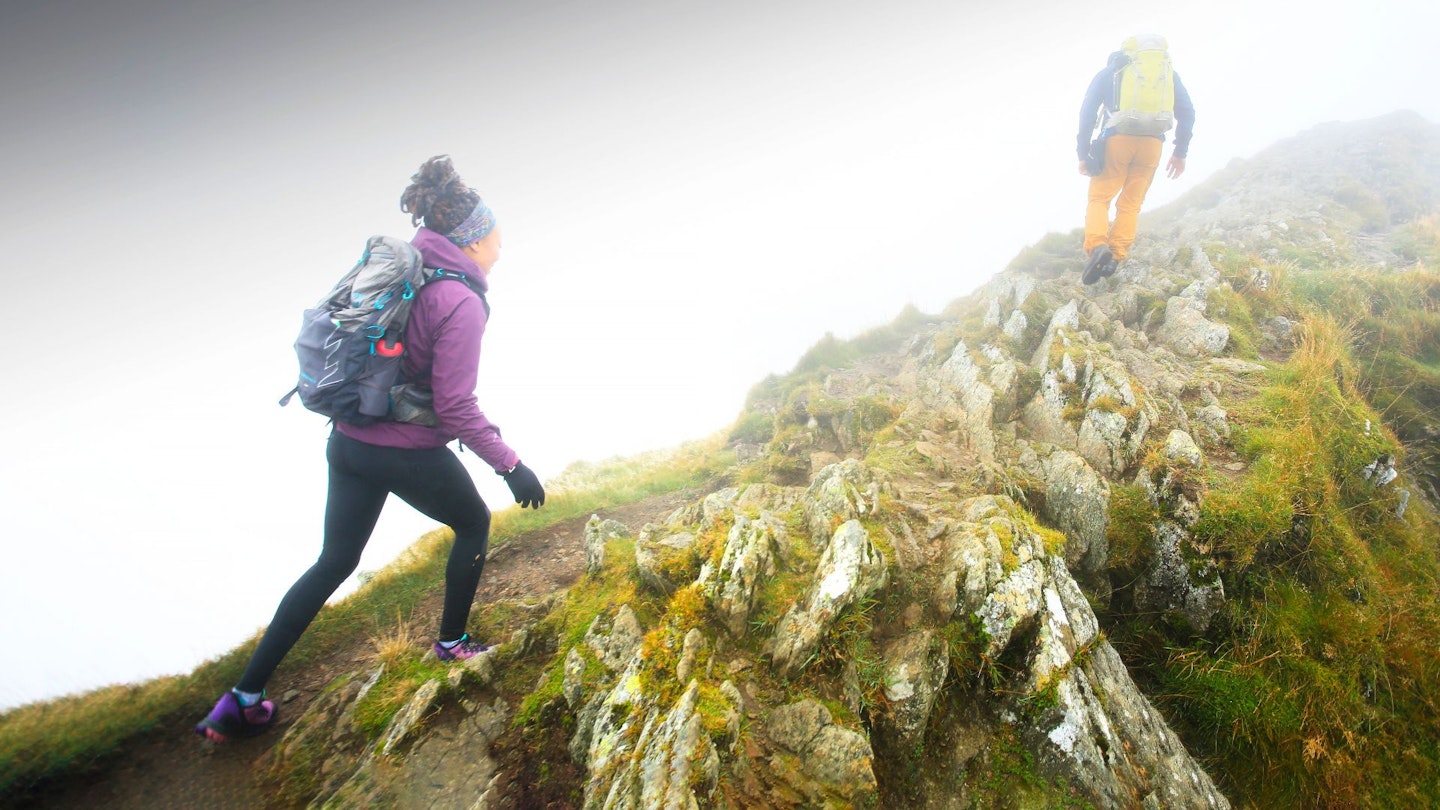
Are waterproof jackets truly waterproof?
Waterproof jackets sit along a spectrum of "how wet will I get", from being lightly water repellent up to using the best waterproof technologies such as Gore-Tex.
No waterproof jacket is absolutely 100% watertight because that'd be like trying to exercise while wearing a giant crisp packet - you'd end up feeling like a frog in a spacesuit. Instead, the material for better waterproof jackets has porosity in order to be breathable, which is essential for user comfort. But some of the more premium waterproof jackets have such high waterproof ratings they can keep you completely dry in the most torrential of conditions.
What's the best waterproof rating for a waterproof jacket?
Hydrostatic head is the unit for measuring waterproofness. Gore-Tex tells us all of its fabrics have a minimum 28,000mm hydrostatic head (HH) rating. This is pretty much the best HH rating you'll find for waterproof jackets. However, rather than using Gore-Tex, some brands use in-house proprietary membranes in their jackets, and so state their own HH ratings.
For hiking, 15,000mm HH is a minimum. Here, we've only chosen jackets with over 20,000mm HH.
How breathable does a waterproof jacket need to be?
Breathable waterproof fabrics keep rain out but simultaneously allow sweat to escape. It works, but some people believe when you're doing hard exercise, it's practically impossible to avoid building up your own moist fug in some manner or other.
Breathability is commonly measured by MVTR (moisture vapour transmission rate) in g/m²/24hr. A higher figure indicates better breathability. RET (resistance to evaporative heat transfer) is another, where a lower figure indicates better breathability (a RET value under 6 is considered very good).
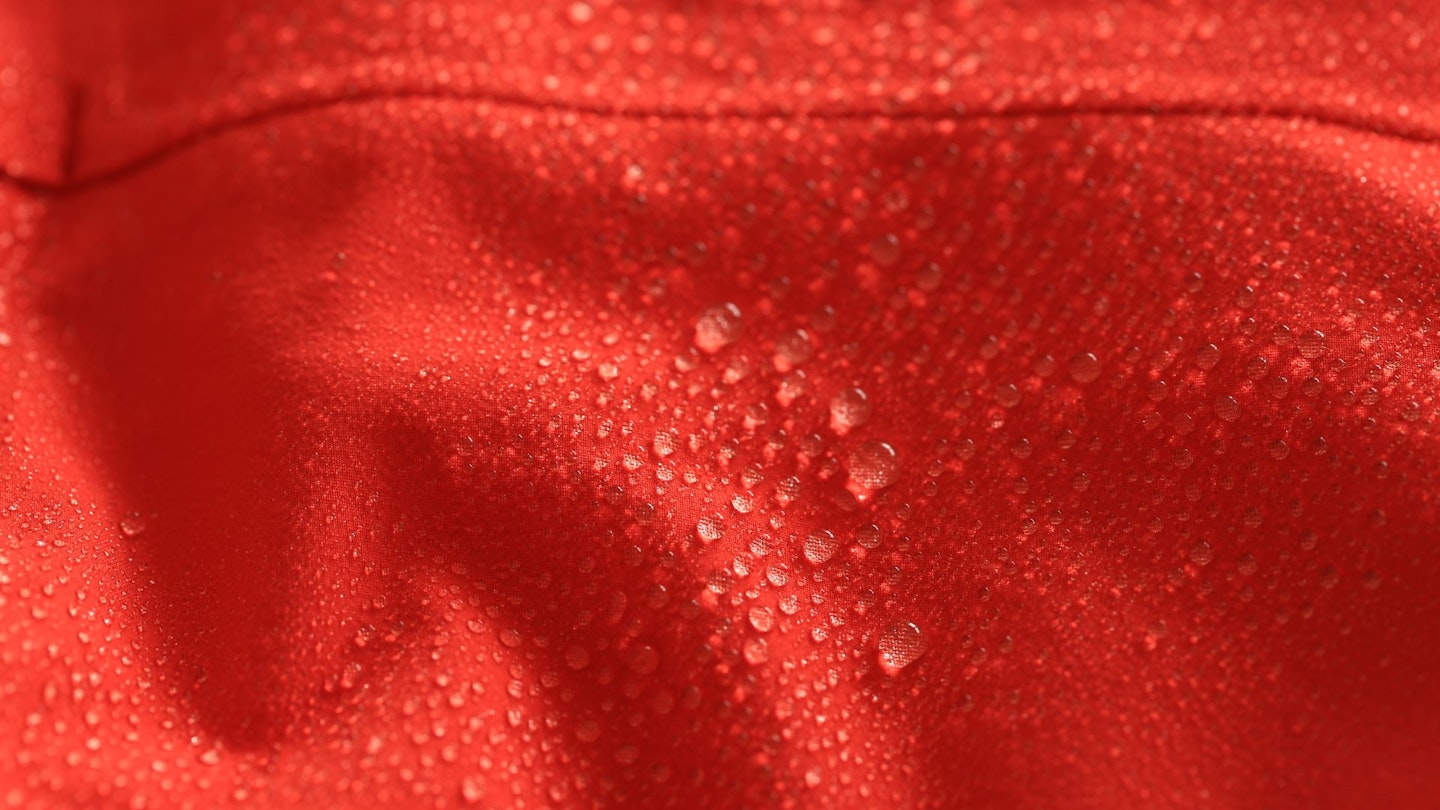
What type of construction should my jacket have?
Jackets are generally categorised as 2, 2.5 or 3-layer, depending on how the waterproof layer is attached to other layers. For poor weather, 3-layer jackets are the most durable, with the waterproof layer sandwiched between a face fabric and inner.
What's the best fit for a waterproof jacket?
Every body is different, and there's probably no need to inform you, if you're a lass reading this, that you could range up to four different sizes in waterproof jackets, depending on the cut, your chest size, waist side and torso length. Ultimately the best approach is to try before you buy. Check the jacket fits your body shape comfortably - arms up, arms down, side-to-side, with a pack on. Too loose and you'll be drafty and cold; too tight and you'll bust a zip with even a subtle hint of overzealous athleticism.
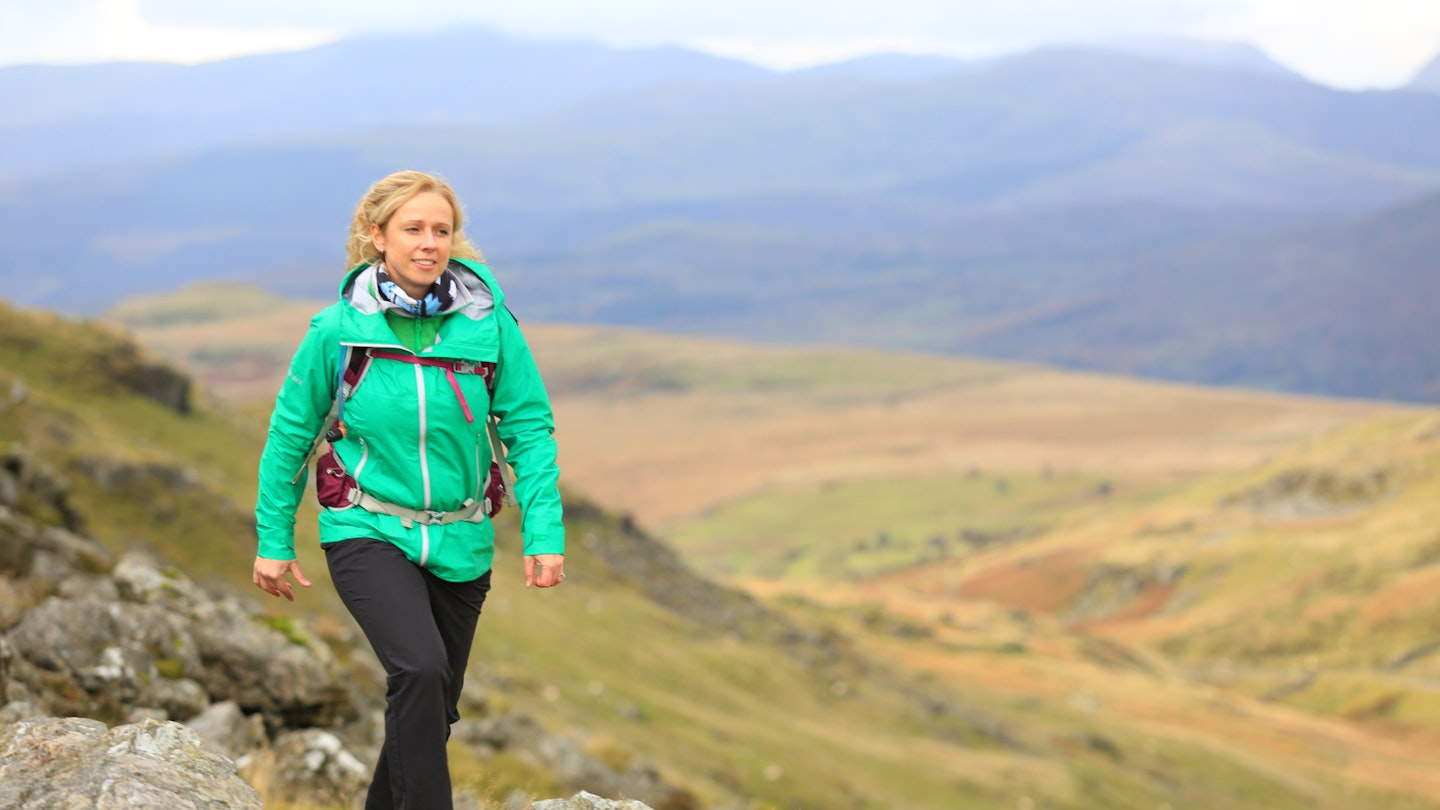
What should the cuffs be like?
Adjustable cuffs sealed with Velcro, toggles or clips are important because they enable a good fit around the wrist, preventing rain ingress. Elasticised, non-adjustable cuffs are less ideal. You can open cuffs wide to aid ventilation when it's not raining.
How should a hood fit?
A good hood should fit relatively snugly, but move easily with your head so you can see where you actually want to go. Volume adjustment enables a fine-tuned fit, and ideally, you want a stiffened brim and wired peak to keep rain off your face. Some hoods are oversized for use with helmets, but many of these can be cinched in at the side when you're not climbing or skiing.
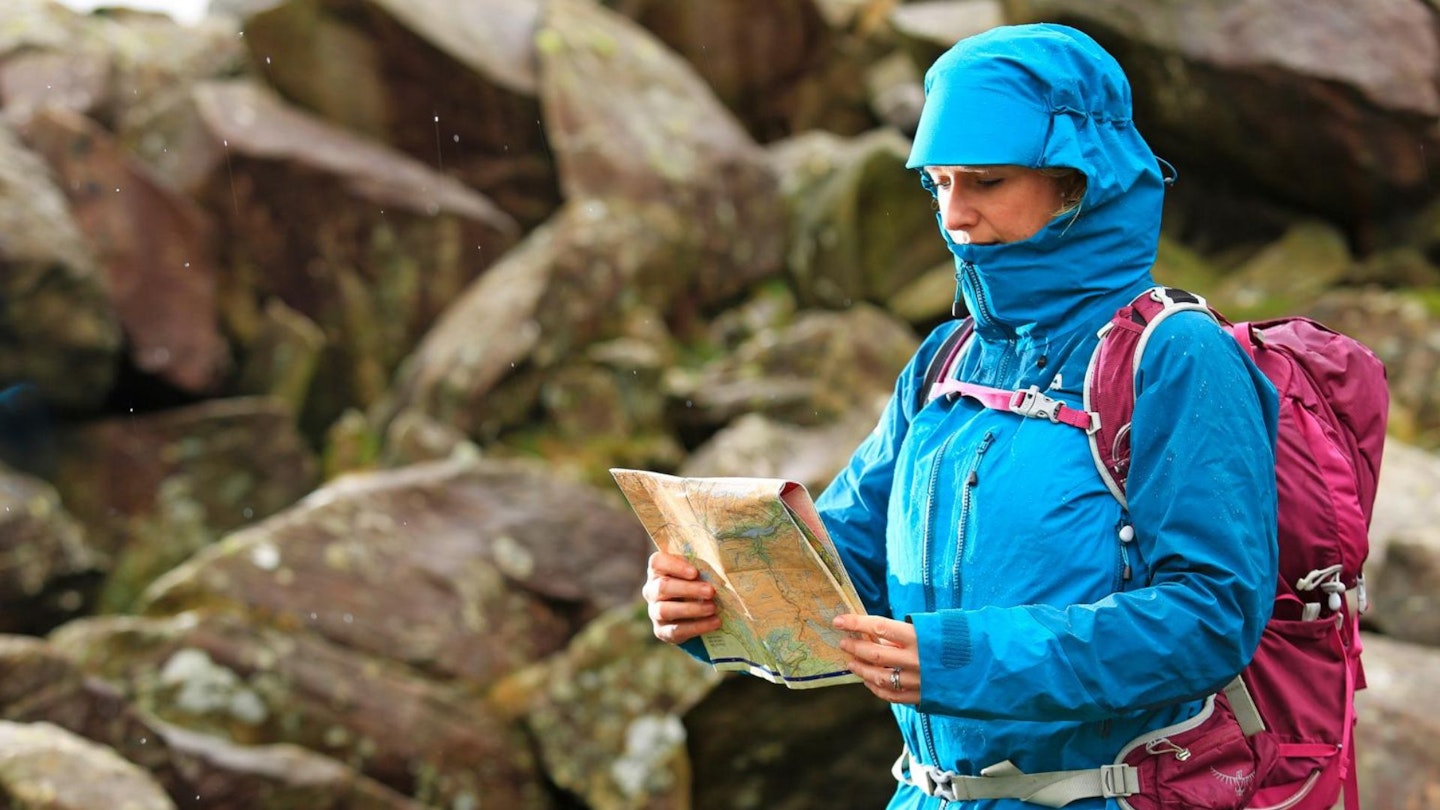
What types of pockets are best?
Big pockets are great for storing maps, gloves, kittens, sweeties and vintage copies of The Beano. We are especially fond of pockets which span the whole torso for this reason. However, bear in mind that outer pockets are the leat waterproof part of any jacket, so store valuables such as your phone in either in a dry-sack in a waterproof rucksack or an inner pocket. It's worth checking the pockets aren't obscured by your rucksack waist-belt too.
Do waterproof jackets have extra ventilation?
Some do, some don't. It's all too easy to overheat while wearing a waterproof, so good ventilation is key. A two-way front zip can be opened from the bottom to improve airflow (as well as accommodate a harness). Some jackets also have underarm/pit zips that allow heat and sweat to escape - just remember to close them when you sit down for your sandwich on top of the hill, or you'll soon get wet and chilly.
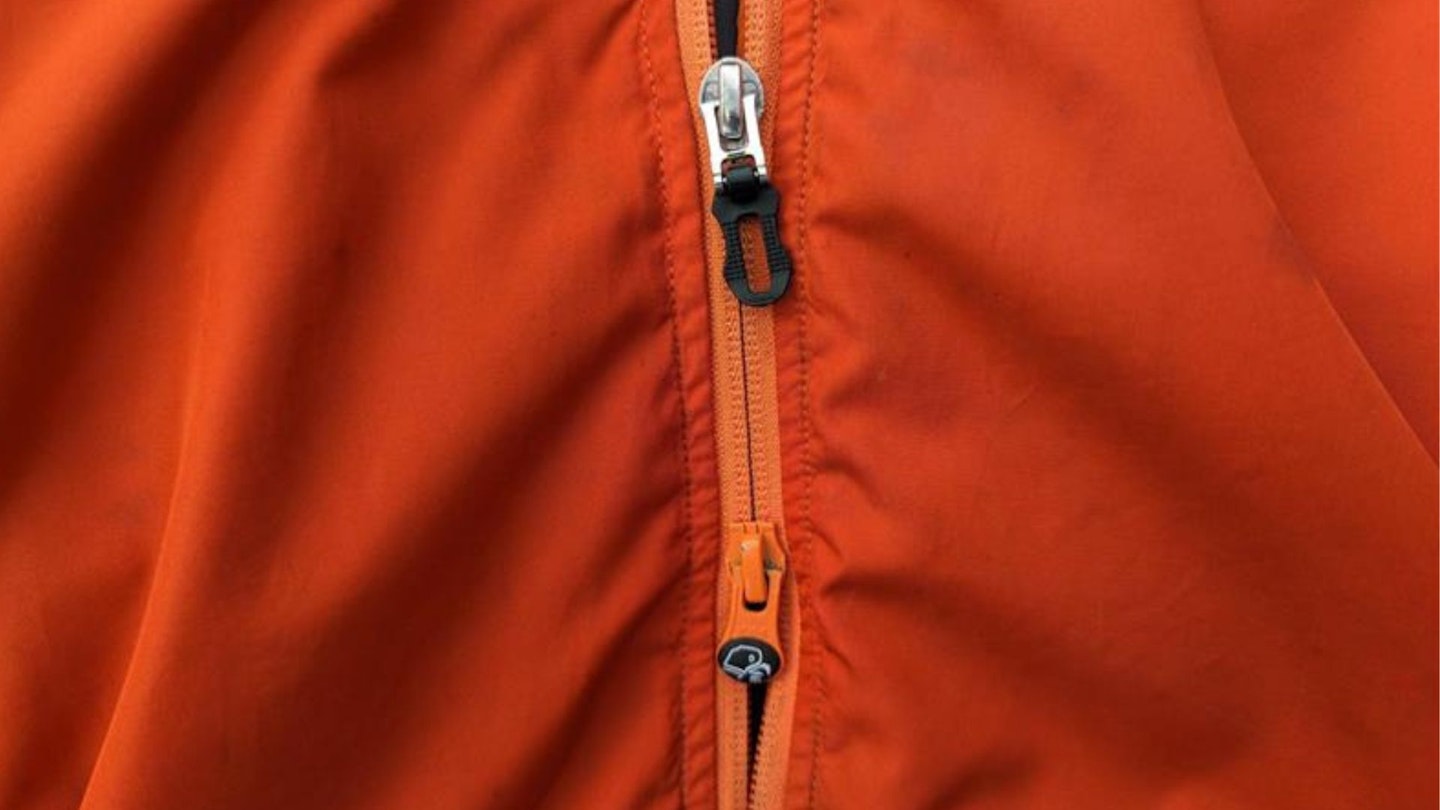
What's the best kind of zip for waterproof jackets?
Zips, like any seal, can be a point of weakness liable to water ingress. For maximum waterproofing, choose a jacket with a water-resistant zip protected by a sturdy stormflap, either behind or in front of the zip, or both. A zip 'garage' – a little waterproof flap to house the closed zip – also helps keep water out.
How do I clean my waterproof jacket?
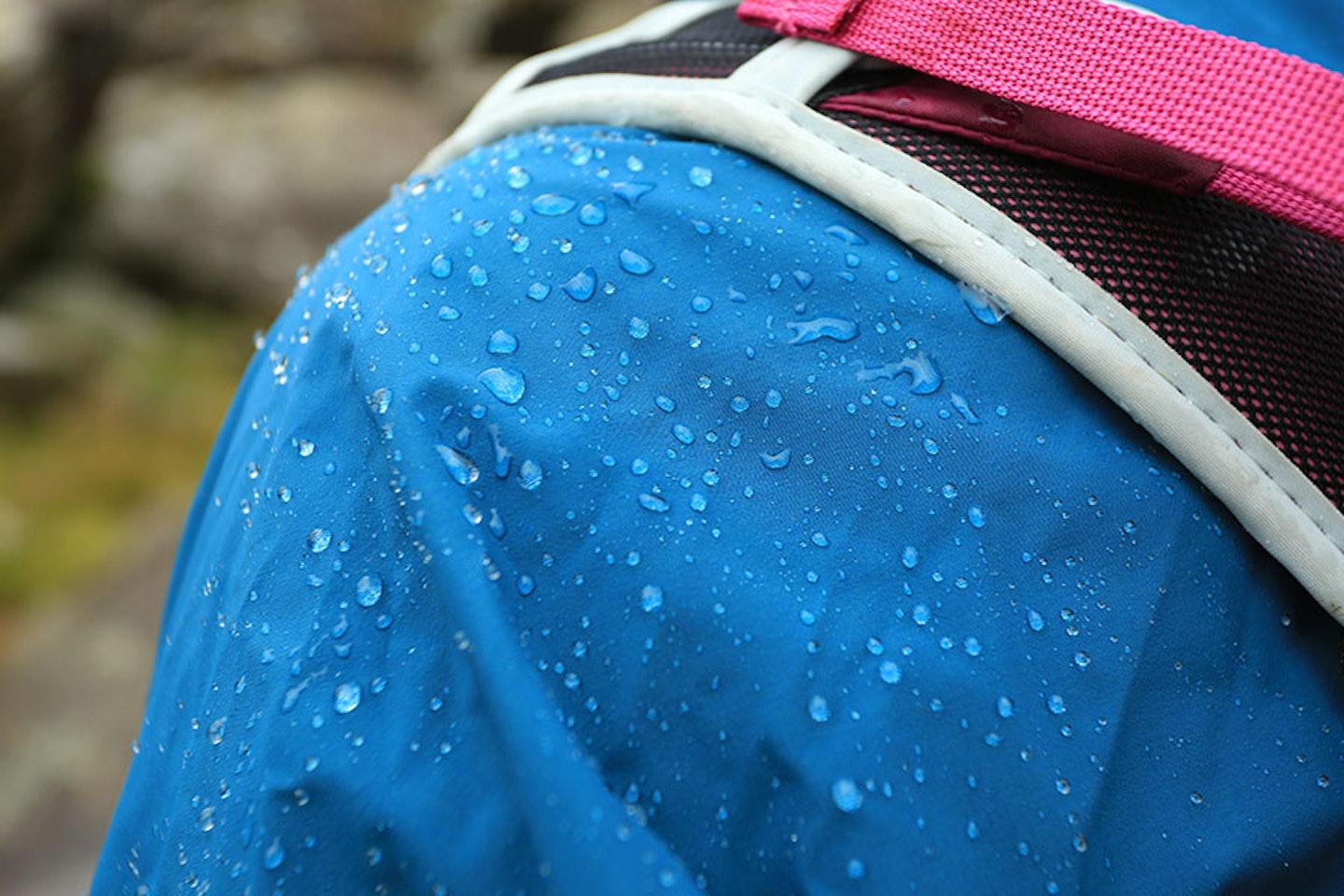
A very common question is 'why isn't my waterproof jacket waterproof anymore?'. More often than not, the answer is simply that it needs a clean.
Buildup of sweat and dirt inhibit a waterproof membrane from working properly. Give it a clean with the products below we recommend, either by hand or in the washing machine, and it'll be right as rain.
After cleaning, you might want to reproof your jacket's water repellent coating as well, which can be easily applied with a Grangers or Nikwax spray. Care and maintenance are vital to jacket performance and longevity. Here are some of the products we recommend:
This water-based fabric cleaning is ideal for any technical or waterproof fabric, including Gore-Tex. It's highly concentrated too, so a little goes a long way. It's also bluesign approved and PFC-free.
Like Grangers, this is also water-based and PFC-free. It too is a very effective cleaner of outdoor and technical garments. Being honest, there's not much separating the effectiveness of Grangers and Nikwax.
This kit includes a big one-litre volume of Tech Wash and the 300ml bottle of reproofing TX.Direct. Add the TX Direct to the washing machine and run a second cycle after cleaning with Tech Wash.
This combo is perfect for cleaning outdoor garment first, then adding durable water repellency to slightly tired waterproof fabrics. Use the Performance Wash like a laundry detergent, but simply spray the Repel Plus over the garment.
If your jacket does suffer a rip or broken zip and needs a fix, there are plenty of retailers (such as Cotswold Outdoor), brands (such as Alpkit), and specialists (such as Lancashire Sports Repairs) that have repair services. Wherever you got your garment, it's always worth emailing the manufacturer to see if they'll take it back for repair if there's a defect.
About the author
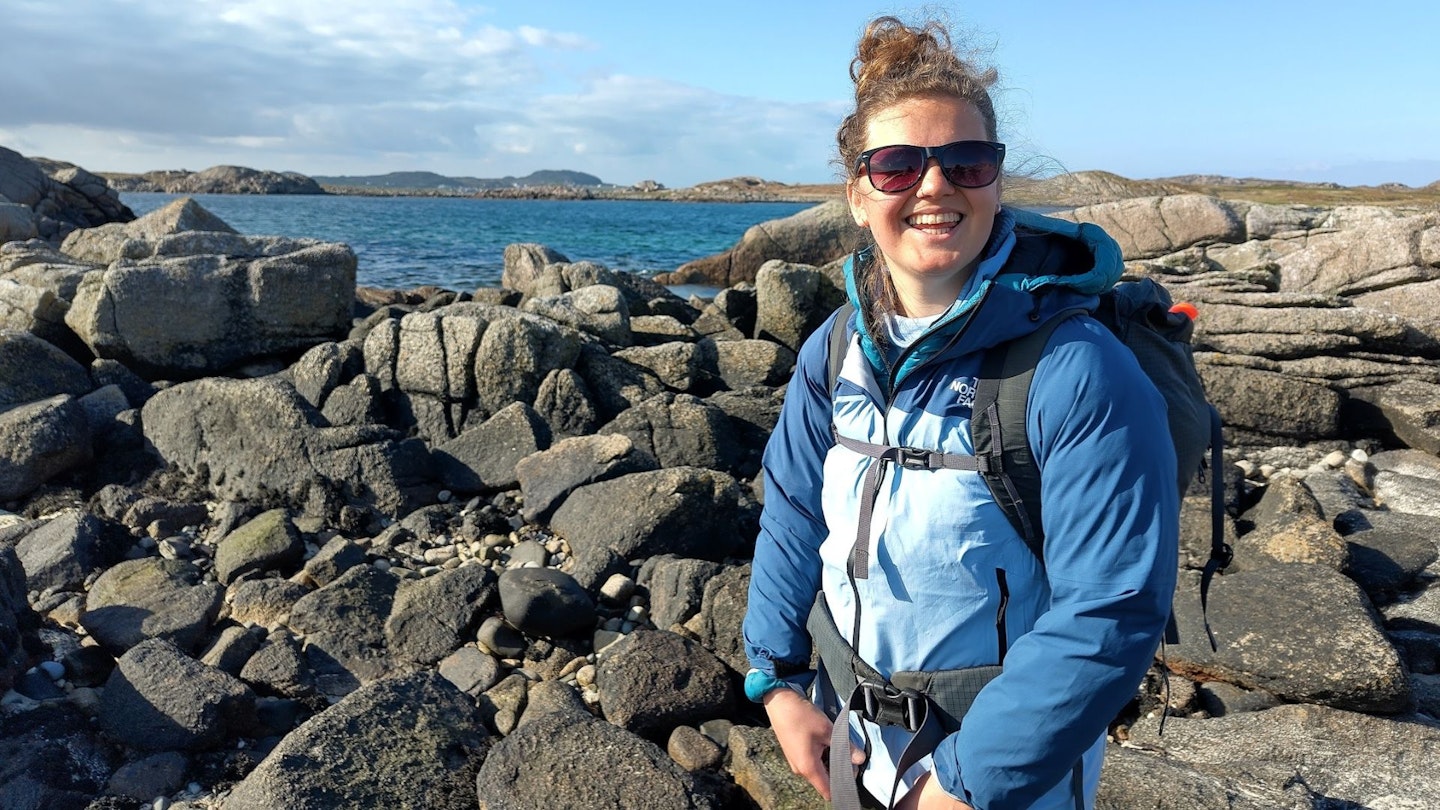
This article was compiled by Fliss Freeborn, a writer for LFTO and someone who, living in Scotland, can never have enough waterproof jackets. Fliss was helped out on recommendations by Trail team writer Jenna Maryniak, and freelance gear testers Sarah Ryan and Ellie Clewlow.

